The Forest and the Trees


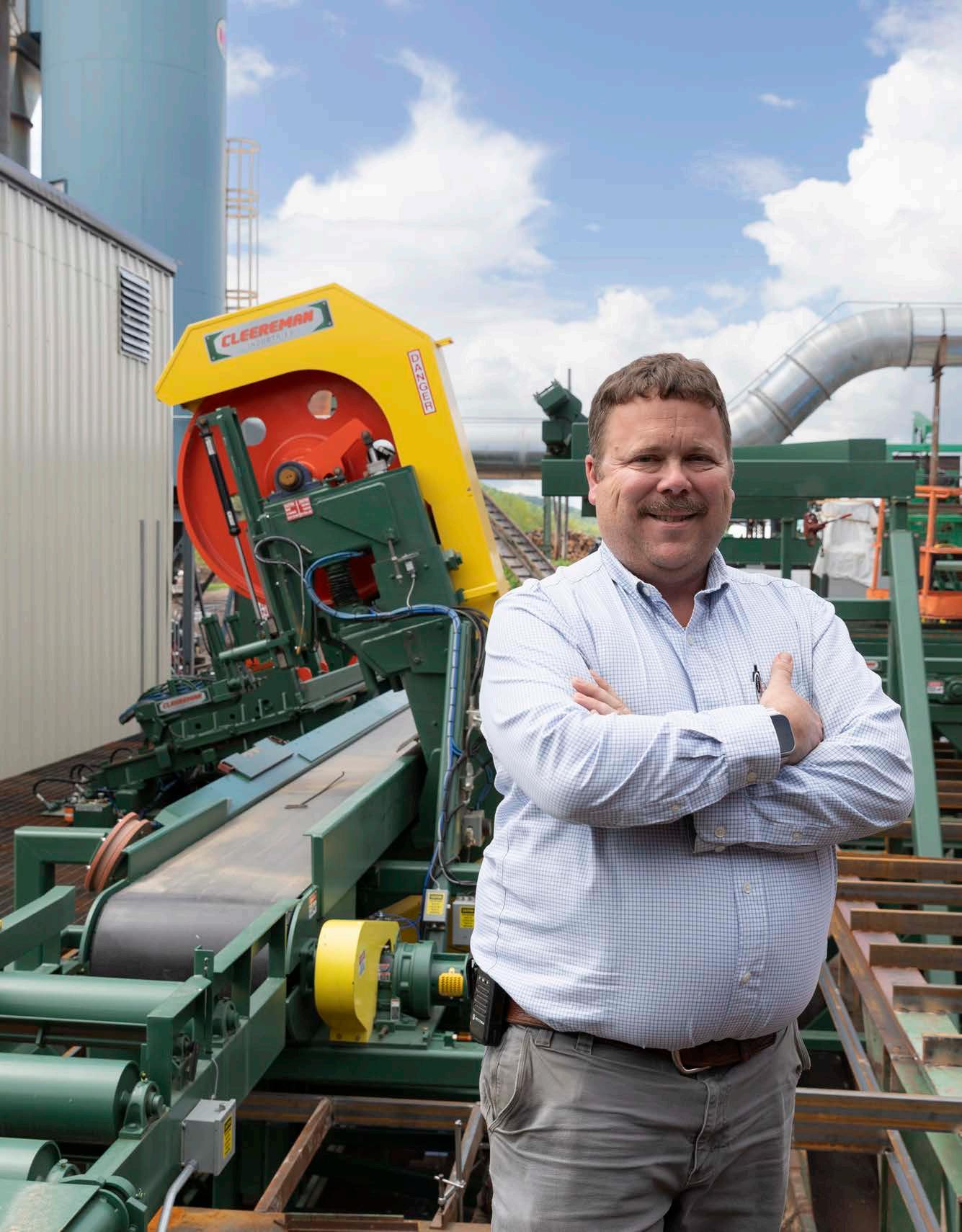
By Gayle Morrow
2025 Endless Mountain Music Festival
Friday, July 18
Opening Night – “The Wheel Spins, a PA Premiere”
In memory of Keith Cooper
7:00 p.m. – Steadman Theatre, Commonwealth University at Mansfield, Mansfield, PA
Sponsored by C&N

Navarro ..................................................... “Libertadores”
Jimmy Webb (composer of “MacArthur Park”) “Nocturne” for Piano and Orchestra (PA premiere)
Featuring - Jeffrey Biegel, piano Intermission
Dvořák .....................................“Golden Spinning Wheel”
Saturday, July 19
“Melissa Manchester Dresses Up” 7:00 PM - Corning Museum of Glass, Corning, NY
Sponsored by Corning, Mountain Home Magazine, and Siemens Energy

Melissa Manchester ... “AWAKE” for Piano and Orchestra (World Premiere)
Neil Sedaka “Manhattan” Intermezzo for Piano and Orchestra—Featuring - Jeffrey Biegel, piano Intermission
Brahms .................................................. Symphony No. 4
Sunday, July 20
“An Afternoon at the Movies!” Pops Concert 2:30 PM - Wellsboro High School Auditorium, Wellsboro, PA – FREE
Sponsored by The Dunham Family Foundation in Memory of Robert N. Dunham, UPMC & UPMC Health Care, Wellsboro Electric Company, and Seneca Resources
Featuring Drew Tretick, Hollywood violinist, with arrangements from the London Symphony Orchestra.
Monday, July 21
“Orchestra Members on Display”
7:00 PM – 171 Cedar Arts Center, Corning, NY
Sponsored by Corning.
String quartet featuring Jennifer Farquhar, Lisa Scott, Jing Ping, and Perry Scott, with soloists Gita Ladd, Kenny Bader, and Hua Jin. The quartet will perform works by Bach, Vivaldi, and Kevin Puts.
Tuesday, July 22
“The Mellow Clarinet”
7:00 PM – Gmeiner Art & Cultural Center, Wellsboro, PA Sponsored by Eugene Seelye Featuring Trina Gross, clarinet and James Rhinehart, piano.

Wednesday, July 23
“Chamber Music Off the Beaten Path”
7:00 PM – Deane Center for the Performing Arts, Coolidge Theatre, Wellsboro, PA —BYOB
Sponsored by First Citizens Community Bank
String quartet featuring Noelle Tretick, Kailbeth Chacin, Paulina Flores, and Lee Richey, with James Rhinehart on piano.
Thursday, July 24
“Islands in the Sun,” featuring Philadelphia’s famous Steel Drum Band
7:00 PM— Penn Wells Hotel
Dining Room, Wellsboro, PA
Sponsored by Hon. Daniel & Mrs.
Mary Ann Garrett (for dinner and reservations 5:30 – 6:30PM call 570-724-2111)

Friday, July 25
“Hear the Voices”
7:00 PM— Steadman Theatre, Commonwealth University at Mansfield, Mansfield, PA
Sponsored by Commonwealth University at Mansfield Borodin
“Prince Igor” Overture
Henry Cowell “Ballad for Piano and Strings”
Featuring Teresa Cheung, Resident Conductor Intermission
Handel “Ode on St. Cecilia’s Day”
Featuring Peggy Dettwiler, Choral Director
Saturday, July 26
“Russia Meets the ‘Sons of Vietnam’”
7:00 PM - Corning Museum of Glass, Corning, NY
Sponsored by Corning
Richard Strauss “Dance of the Seven Veils”
Arranged by Michael Drabkin
Kimo Williams “Sons of Vietnam” (PA Premiere) Intermission
Tchaikovsky ........................................... Symphony No. 5
Sunday, July 27
“EMMF Brass Under the Stars!”
8:00 p.m.—Cherry Springs State Park, Overnight Astronomy Observation Field (with the telescope domes) - FREE Sponsored by The David G. Patterson Foundation and The Gale Foundation
Featuring Rebecca Dodson-Webster, horn; Brian Strawley and Josh Carr, trumpet; Alexander Walden and J.J. Cooper, trombone; Kevin Ladd, tuba; and Jason Mathena, percussion.
Monday, July 28
“EMMF’s Famous Brass Quintet”
7:00 p.m.— Deane Center for the Performing Arts, Coolidge Theatre, Wellsboro, PA—BYOB
Sponsored by Spencer, Gleason, Hebe, & Rague, PC
Featuring Rebecca Dodson-Webster, horn; Brian Strawley and Josh Carr, trumpet; Alexander Walden and J.J. Cooper, trombone; Kevin Ladd, tuba; and Jason Mathena, percussion.
Tuesday, July 29
“All About Wood,” featuring the EMMF Woodwind Quintet
7:00 p.m.— Tioga County Courthouse, Wellsboro, PA
Sponsored by the EMMF Board of Directors
Featuring Lish Lindsey and Ellen Gruber, oboe; Trina Gross, clarinet; Lynn Monsilevitch, bassoon; and Melvin Jackson, horn.
Wednesday, July 30
Alyssa Wray in Concert: Songs That Feel Sunshine
7:00 p.m.— Deane Center for the Performing Arts, Coolidge Theatre, Wellsboro, PA—BYOB
Sponsored through a cooperative effort of EMMF and Prima Theatre, Lancaster PA

Featuring Alyssa Wray, vocals; Ali Murphy, piano; and Perry Scott, cello.
Thursday, July 31
“Percussion Explosion!” featuring Jason Mathena, percussion
7:00 p.m.— Knoxville Library, Knoxville, PA—FREE
Sponsored by the Deerfield Charitable Trust
Friday, August 1
“Explore Noah’s Ark”
7:00 p.m.— Steadman Theatre, Commonwealth University at Mansfield, Mansfield, PA
Sponsored by Visit Potter-Tioga
Navarro ...........................................
“New Dawn” Overture

Mozart ................................................. Clarinet Concerto
Featuring Trina Gross, clarinet Intermission
Navarro ........................................................
“Noah’s Ark”
Saturday, August 2
“Mozart Meets Spain”
7:00 p.m. — Corning Museum of Glass, Corning, NY
Sponsored by Corning and Mary Burton
Debussy “Petit Suite”
Piazzolla “Fuga y Misterio”
Arranged by Stephen Gunzenhauser
Piazzolla “Milonga del Angel”
Arranged by Stephen Gunzenhauser
De Falla Suite No. 2 from “Three-Cornered Hat” Intermission
Mozart ............ Piano Concerto No. 21 “Elvira Madigan”
Featuring Andrew Li, piano
Sunday, August 3
Corning Pops Concert: “Bluegrass & More!”
2:30 p.m.— Corning Museum of Glass Corning, NY—FREE
Sponsored by Corning, Community Foundation of Elmira-Corning and the Finger Lakes, Inc., The ARTS
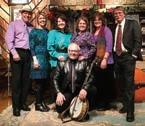
Council of the Southern Finger Lakes, and Laura Douglas
Featuring the McLain Family Band.
Lilace Mellin Guignard
By Ann E. Duckett
Carrie Heath
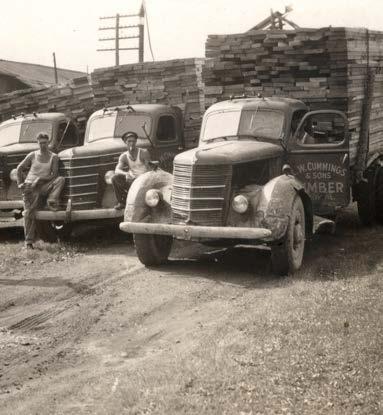
and the Trees
By Gayle Morrow
David Higgins
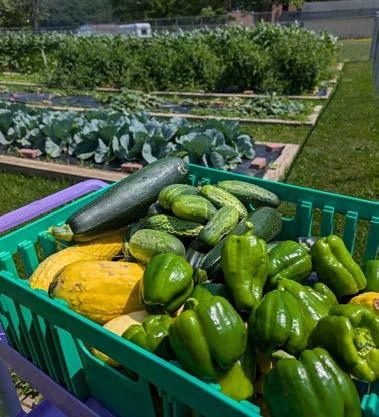
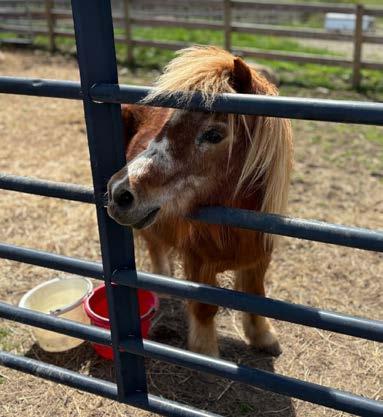
Karey Solomon


mountainhomemag.com
E ditors & P ublish E rs
Teresa Banik Capuzzo
Michael Capuzzo
A ssoci A t E E ditor & P ublish E r
Lilace Mellin Guignard
A ssoci A t E P ublish E r
George Bochetto, Esq.
A rt d ir E ctor
Wade Spencer
M A n A ging E ditor
Gayle Morrow
s A l E s r EP r E s E nt A tiv E
Shelly Moore
c ircul A tion d ir E ctor
Michael Banik
A ccounting
Amy Packard
c ov E r d E sign
Wade Spencer
c ontributing W rit E rs
Ann E. Duckett, Carrie Heath,
David Higgins, Janet McCue, Don Everett Smith Jr., Karey Solomon, Matthew Stevens
c ontributing P hotogr AP h E rs
Janet McCue, Don Everett Smith Jr.,
Tai Sophia Photography, Matthew Stevens
d istribution t EAM
Dawn Litzelman, Grapevine Distribution, Linda Roller
t h E b EA gl E
Nano
Cosmo (1996-2014) • Yogi (2004-2018)
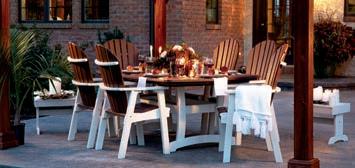

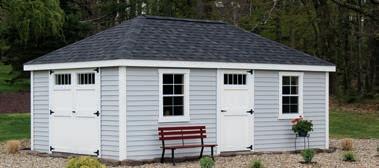

ABOUT US: Mountain Home is the award-winning regional magazine of PA and NY with more than 100,000 readers. The magazine has been published monthly, since 2005, by Beagle Media, LLC, 39 Water Street, Wellsboro, Pennsylvania, 16901, online at mountainhomemag.com or at issuu.com/mountainhome. Copyright © 2025 Beagle Media, LLC. All rights reserved. E-mail story ideas to editorial@ mountainhomemag.com, or call (570) 724-3838. TO ADVERTISE: E-mail info@mountainhomemag.com, or call us at (570) 724-3838.
AWARDS: Mountain Home has won over 100 international and statewide journalism awards from the International Regional Magazine Association and the Pennsylvania NewsMedia Association for excellence in writing, photography, and design.
DISTRIBUTION: Mountain Home is available “Free as the Wind” at hundreds of locations in Tioga, Potter, Bradford, Lycoming, Union, and Clinton counties in PA and Steuben, Chemung, Schuyler, Yates, Seneca, Tioga, and Ontario counties in NY.
SUBSCRIPTIONS: For a one-year subscription (12 issues), send $24.95, payable to Beagle Media LLC, 39 Water Street, Wellsboro, PA 16901 or visit mountainhomemag.com.


Last Great Place
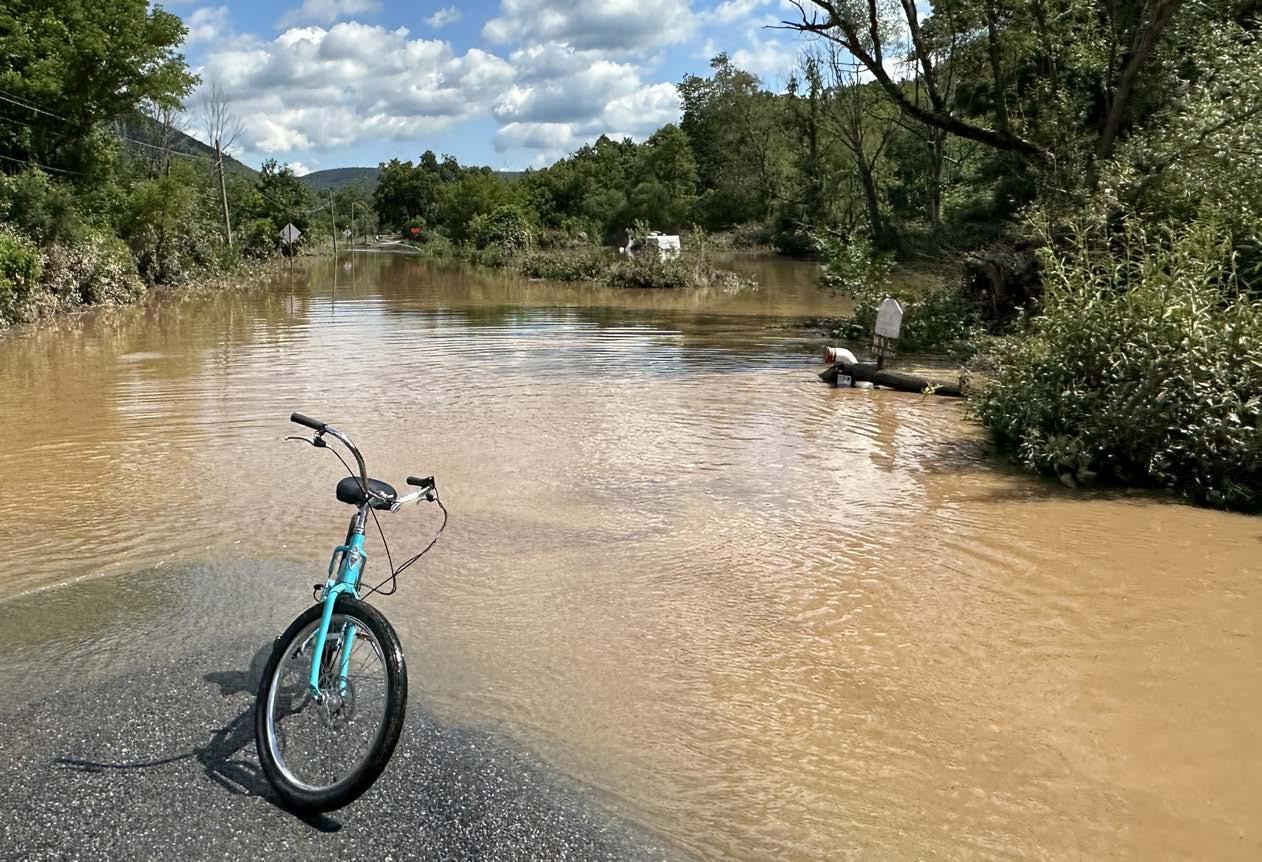
Wanted: A Flood of Stories
By Lilace Mellin Guignard
It seems like a bad dream. It seems like yesterday. It will be a year this August, and we need your help telling the stories you cannot forget, the ones no one should, the ones that need telling and saving.
On August 9, 2024, Debby, downgraded from a hurricane to a post-tropical depression, ripped through our area with high winds, flooding, and general havoc. It happened fast, and its intensity caught us unaware. Emergency declarations were declared. Evacuations were organized. And, as the sun came out and waters receded, stock was taken, blessings counted, animals found, and losses mourned.
Throughout the devastation and the recovery that followed (and follows still), stories were shared. The August issue of Mountain Home will commemorate the anniversary by publishing stories in our readers’ own words about what happened, how it felt, who they met, and how they got through it.
We are asking for stories of 300 to 500 words that focus on a slice, a moment, an image, a person. Using your best descriptive skills—colors, textures, smells, sounds— bring us into that moment with you. Ground us in where and when it is. Tell us how it changed you.
WE NEED STORIES AND PHOTOS BY JUNE 16
We are also looking for photos. These do not have to accompany a written story. We do need them to be of a resolution we can print. That means, the highest quality possible which would be straight from your camera or phone, not a screenshot or saved from social media.
We would prefer to receive them via email, at mhfloodstories@mountainhomemag.com. If you must use snail mail, our
address is 39 Water Street, Wellsboro, PA 16901, ATTN: Flood Stories. Be sure anything handwritten is easily readable. For all submissions, include your name as you’d like it to appear, phone number, and where you live.
We know we won’t have room for all that we want to publish. We will select what to include based on the variety of subject matter, geographical spread, and which stories stick in our minds late into the night. If we decide to use your story or photo, we will contact you. If we edit anything, we will show you before printing (another reason email submissions will have an advantage). It seems only right that this anniversary be marked by a creative collaboration, because working together is what got us through. Thank you for trusting us with your words, images, hope, and grief.

The Forest and the Trees
After a Fire at Cummings Lumber, Scott Had His Millwork Cut Out for Him
By Gayle Morrow
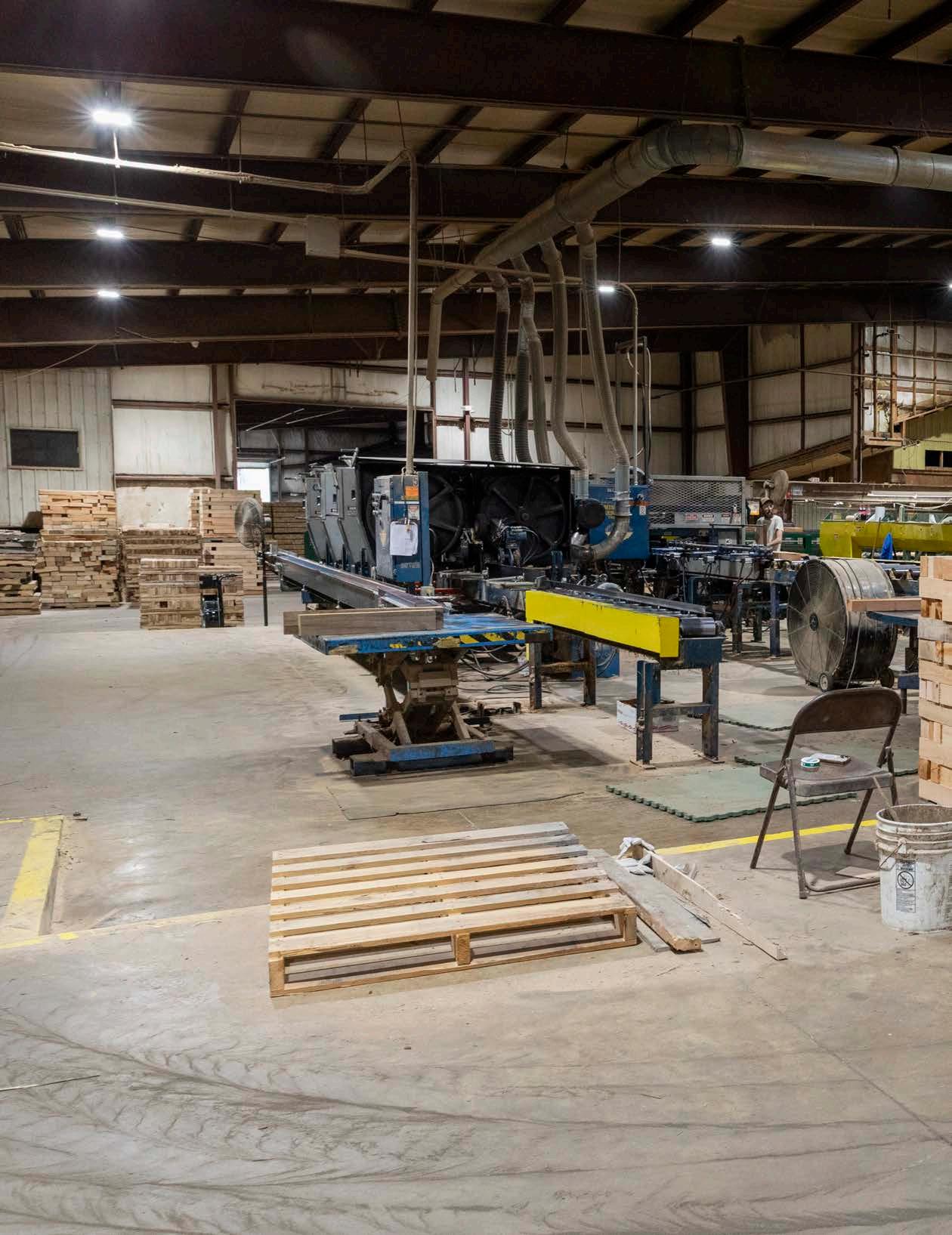
Scott Cummings wasn’t home the night of the fire. He was at a conference in South Carolina, so it was his wife, Robyn, who took the call at 11:56 p.m. on Tuesday, June 25, 2024, telling her that Cummings Lumber was burning. It was a long way from funny then, but she can laugh a little now when she tells how many times she called her husband to tell him what was going on, and how many times he didn’t answer his phone. She finally gave up, deciding that this might be the last night for a while that he would be able to sleep. In the interim, she called Norm Steffy, Cummings Lumber Company vice president, Scott’s father, Roy, and Cassy Dygert, director of finance and human resources for the Troy-based business. Cassy remembers wondering, “Why is Robyn calling me at midnight?” She found out.
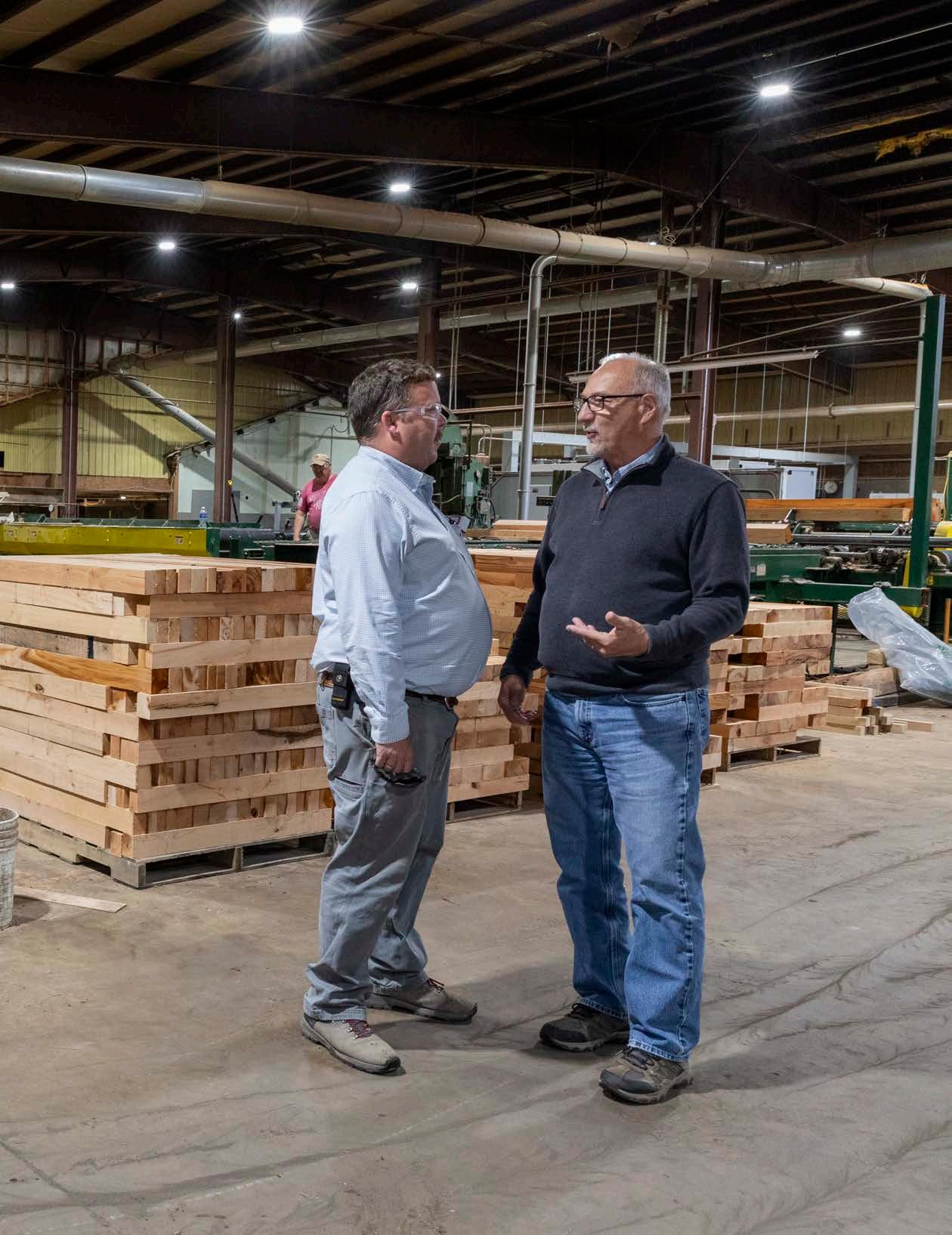
Milling About
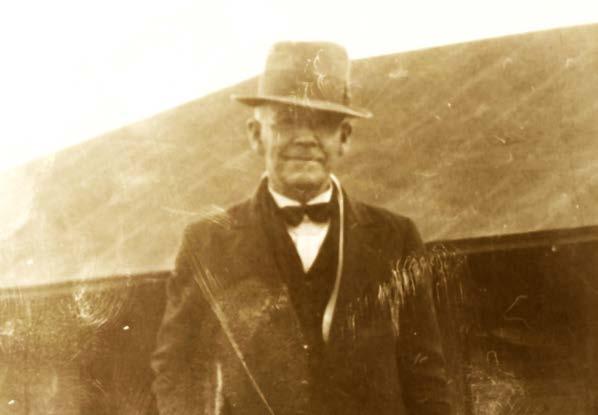

Forest continued from page 6
“My heart immediately sank,” Robyn remembers. “I felt overwhelmingly sad and a bit nauseous. Then you’re in go mode.”
Over seventeen emergency departments responded to the blaze. It was about 5 a.m. in the morning when it was deemed under control, and several hours before Route 14 would be reopened. It was about 6 a.m. when Robyn was finally able to speak with Scott, and his first question was, “Is everyone okay?” They were. He then rearranged his flight schedule and was back home by about 7 p.m.
There have been a number of investigations regarding the cause of the fire that damaged or destroyed about 20,000 square feet of the business, but nothing definitive has resulted. Kevin Morgan, graphic designer for Cummings Lumber Company, can pull up dozens of security camera pictures from that night, including footage showing an area of embers, a hot spot. But there’s been no conclusive answer to the question of what made that spot hot, or even if that spot was the culprit.
“I don’t think I’ve heard what exactly started it,” Robyn says.
It would be nice to know, certainly, but maybe at this point what matters more is what’s next.
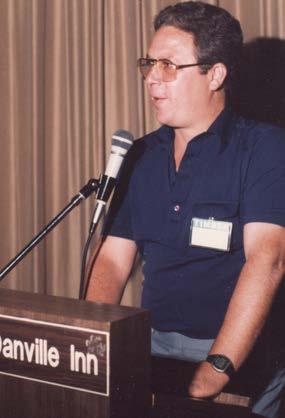
What They Saw Cummings
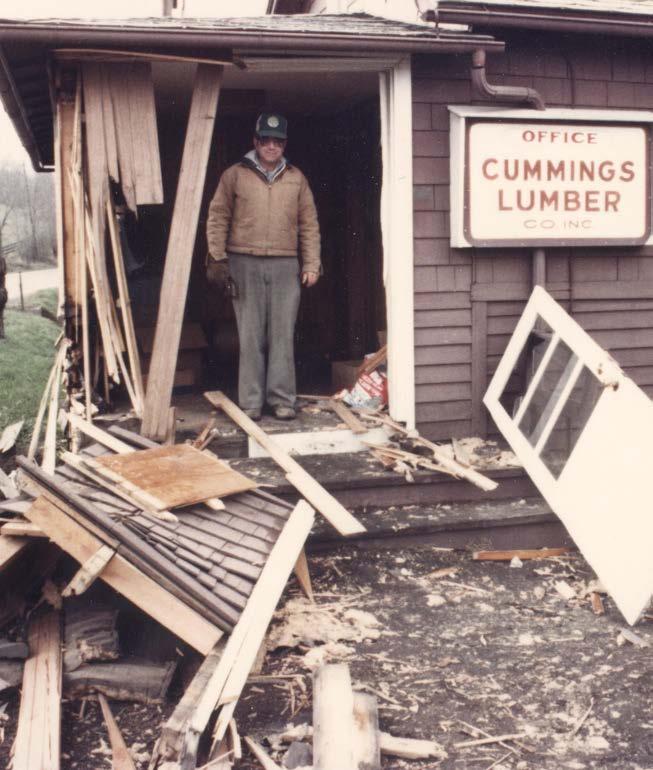
“When something so devastating happens to your business, how do you move forward?” Robyn muses. “Through the fire, our primary focus was how do we keep everyone, as best we can, employed? How do we rebuild as quickly as possible?”
She says that one of the things she has discovered over the years about her husband is that he has a “we can fix this” attitude.
It’s true. Scott comes from a family of candoers.
A Few Branches on the Family Tree
In 1929, Lee William Cummings, Scott’s great-grandfather, moved to Troy from the Wellsboro area. He’d been a cook in a lumber camp, Scott says. Here in Troy he started L.W. Cummings and Son Lumber. They skidded logs with horses. There was no electricity in Troy at the time, so they used steam engines for power at the mill. Logs were shipped by rail.
In 1942, Roy Cummings Sr., Scott’s grandfather, began his career at what was now Cummings Lumber Company. Over the next couple of decades, he tried his hand at a few other successful endeavors, including a sawmill in East Troy and one in Ralston (that one closed in 1980). In 1964 he oversaw the construction
and installation of a lumber slot sorter, which is an automatic system for sorting and processing based on size, grade, and other factors.
Roy Cummings Jr., Scott’s father, started at CLC in 1968. In 1980 he opened a sawmill in Monroeton (it closed it 1988). In the late 1980s, a car hit the CLC office, and in 1988 the CLC mill burned; in 1989 a new office and new mill were built.
Barefoot Flooring Inc., a separate company owned by the Cummings family, started in 2001, followed in 2005 by Barefoot Pellet Company. Both of those enterprises are important links in the “we use every part of the tree” credo that goes a long way toward making CLC a leader in sustainable forestry.
Scott hasn’t been working at the mill quite since he was born, but started when he was fourteen during summers and when he wasn’t in school. He went full time in 1995 and became CLC president in 2014. Robyn, an unabashed fan, says Scott can handle “any aspect of the business.”
“Scott knows how to do every single job—stacking, grading, working on the equipment—he can step in and fill the role. That’s what makes him a successful president and leader.

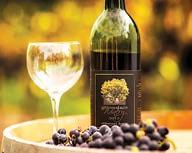


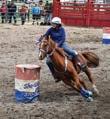

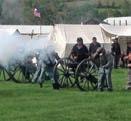






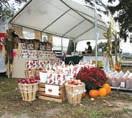






Power Mobility - Oxygen
Home Medical Equipment
Custom Braces - Diabetic Shoes
• Hospital Beds
• Oxygen
• CPAP/Bipap Machines and Supplies
• Incontinence Supplies
• Power Mobility
• Compression Hosiery
• Braces - Knee, Ankle, Arm
• Mobility Equipment
• Ostomy Supplies
• Bathroom and Home Safety Equipment
• Wound Care Supplies





























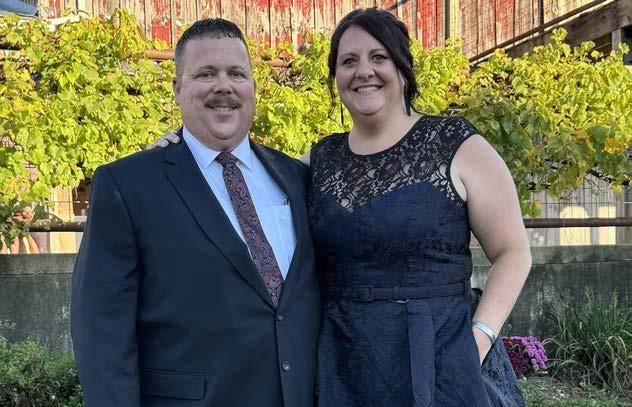
Tower of Strength

“He excels in business, but his heart is so big. He cares very much about the community.”
Scott’s a member of community-based organizations, including the Troy Fire Department (and would have responded to the fire at his own business had he been home), the Troy Lion’s Club, Alparon Park board of directors, Troy American Legion Auxiliary Unit 49, and the Armenia Debating Club. At the state and national levels he is a member of Pennsylvania Forest Products Association, Hardwood Manufacturers Association, Appalachian Hardwood Manufacturers, and the Hardwood Federation.
Scott Cummings, with his wife, Robyn (top), leads a strong team handling powerful equipment, including Angela Hall in the Cleereman control booth (third) and Duane "Bucky" Buck (bottom) sharpening a blade.

(3) Wade Spencer
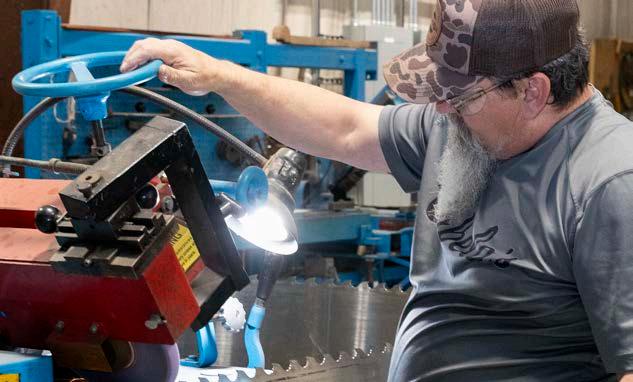
Robyn, the executive director of the Bradford County Tourism Promotion Agency, is as busy as her husband. The two married on September 21, 2018, at Belhurst Castle in Geneva, overlooking Seneca Lake. Their wedding date is also the same day Scott’s grandfather, Roy Cummings Sr., married Scott’s grandmother, A. Margaret, “affectionately called Peggy,” Robyn relates. Though they were “busy then, being involved in many civic organizations and work related functions,” they did manage to squeeze in a ten-day honeymoon to Tuscany.
Robyn thinks they might be even busier these days.
Lots of Moving Parts
Even operating at just partial capacity, the Cummings Lumber Company sawmill is busy—sprawling and noisy, with enormous, serious-looking, and definitely very sharp and pointy pieces of equipment moving logs and boards, cutting them, peeling bark off, slicing them, chewing them up, and spitting out the scraps.
“Don’t stand there,” Scott cautions, indicating a spot near the end of a conveyor belt that seemed like a likely place to take it all in safely and not be in anybody’s way. But it’s where a log would be coming out of something called the Wood-Mizer, one of the pieces of equipment used to trim and shape logs. “If they hit the wrong button…”
Advice heeded.
There is quite a bit of activity throughout the expansive work area, yet it all seems orderly despite the ongoing reconstruction and machine installation.
“We’re trying to keep it as neat and tidy as we can,” Scott says. Pallet lumber is one of the cash crops. The raw material for that is slab wood—as Scott has stressed, they use every part of the tree at CLC. It has to be cut to size and bundled, then it goes to Towanda to a pallet factory there—one or two tractor trailer loads a week.
Some sections are still under repair, nearly a year after the fire, and in others the wait for the return to pre-fire production is based on equipment that hasn’t been replaced, repaired, or completely set up yet. In the new Cleereman control booth (just for fun, check out cleereman.com for a fascinating look at equipment you probably never knew existed), an operator will use what looks like joysticks to control the carriage that carries logs for their “primary breakdown.”
The Cleereman’s job, Scott explains, “is to get the log squared to four sides for the re-saw to handle.”
Working nearby in the tangle of new and refurbished electrical components, a man responds to greetings from Scott and Robyn. He’s a cousin who has an electrical contracting company.
“That’s helped,” says Robyn.
The fire destroyed the head saw—that’s the saw that makes the initial cuts on a log—and in the new saw shop, Duane “Bucky” Buck, a
saw filer who’s been with CLC for twenty-seven years, has been restoring and refurbishing some of the damaged equipment. The old shop was part of a wooden building, and it burned. The new shop is “Bucky’s idea of how to set everything up,” Scott says. This morning he’s sharpening some pretty fearsome-looking saw teeth.
There are twelve kilns on the premises; the boiler that heats them burns sawdust as its fuel, which, ironically, has to be purchased at this point because the mill’s production isn’t sufficient to produce enough of the stuff.
“When we get going again, we’ll be cutting 40,000 board feet of logs per day,” says Scott. “Now it’s about 6,000 feet per day. We were shipping thirty to forty shipping containers per month.”
One recent shipment was eight containers, but the amount varies month to month, he adds.
Before the fire, production at CLC was 8 to 10 million board feet of logs per year. Close to 50 percent of the lumber they process is exported. China is a big importer of lumber from Troy.
Standing in one of the kilns is kind of like being in a sauna—it’s warm and humid, and the air has a pleasant woody fragrance.
“We can dry 700,000 board feet at capacity,” Scott continues. The amount of time it takes to dry boards depends on the type of wood and the thickness. It ranges from fourteen to thirty-five days.
Scott estimates the fire caused over 5 million dollars in damage.
Trees for Now and for the Future
Pennsylvania leads the nation in the production and exportation of hardwoods, and lumber is the number one agricultural industry in the state. Thankfully, the days of denuding entire mountainsides are gone.
In Pennsylvania, according to recent statistics from the United States Department of Agriculture, forest-based employment stands at 72,173. There are over 2,000 hardwood-related businesses spread across all sixty-seven counties.
Scott says probably close to 50 percent of the lumber processed at CLC is exported. At one time, one in every four boards in the country went to China.
The state has over 16 million acres of forested land, with about 70 percent of that being privately owned. One hundred percent of the forestland where CLC cuts is either privately owned (not by CLC) or state owned. Property owners can request a free CLC appraisal of their forested acreage.
“We look at it, come up with a price, then typically enter into a two-year contract [if the property owner decides to sell the timber],” Scott says. Trees with a fifteen-inch or greater DBH, which is diameter at breast height, are the ones usually cut.
“By harvesting larger trees, we open up the canopy to the forest floor to let the smaller trees grow,” he explains. “It’s almost like pruning.”
He says the US Forest Service, which operates under the auspices of the USDA, conducted a study a decade ago on the forests in the 344-county Appalachian region, of which this area is a part. The conclusion then was that trees in the region are growing two and a half times faster than they’re being cut. Another study shows that the Keystone State’s forests have over five times more standing timber today than they did in the 1950s.
Hardwood trees tend to regenerate naturally, given the right condi-
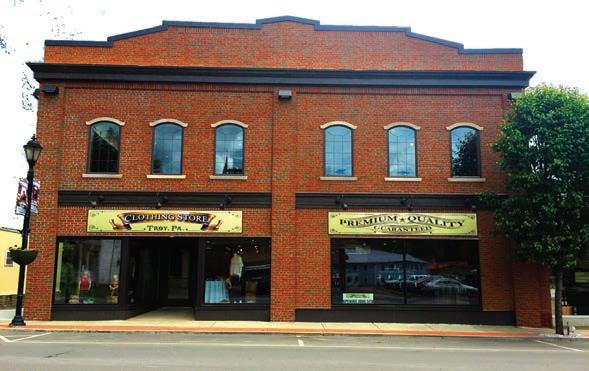































welcome to WELLSBORO
Wild Asaph Outfitters











Canyon Country Fabrics

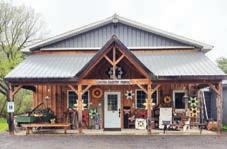







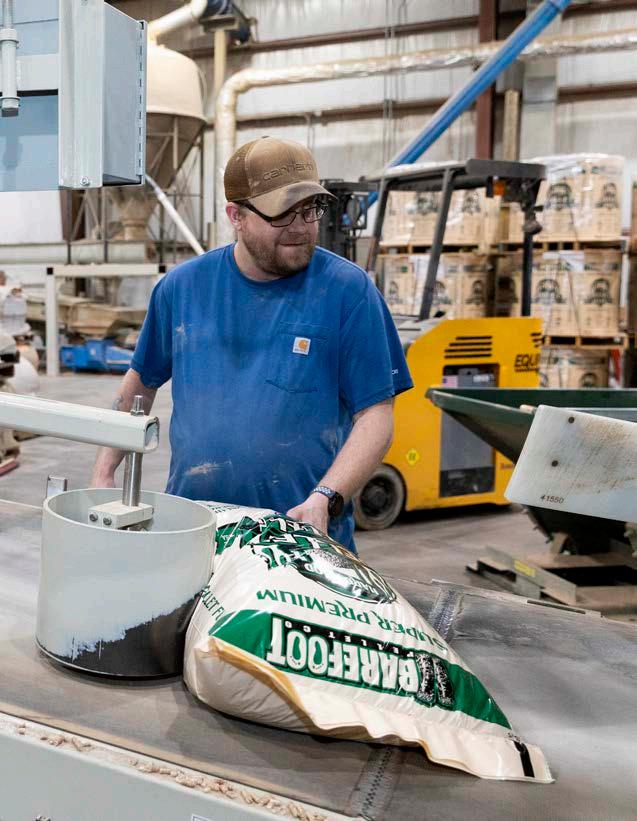
tions, of course, and responsible harvesting helps maintain forest health and wildlife habitat. Living trees capture carbon, and wood products store that captured carbon for the life of the product.
Use It All
Even at reduced production, turning logs into boards creates big piles of bark. What to do with it? At CLC, it’s ground up and used for landscape mulch. Chips and sawdust, the sawdust that’s not needed for the kiln boiler, are ground into pellets.

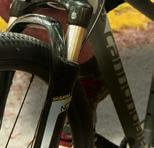

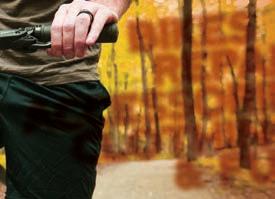
Barefoot Pellet Company (barefootpellet.com) is a separate company from CLC, but also owned by the Cummings family. The factory produces pellets for heating (pellets also make great cat litter!), and test their product weekly in their own lab for moisture content, BTUs, durability, bulk density, and other factors. Barefoot Pellets are classified as “super premium,” based on specifications from the Pellet Fuels Institute. The pellets are also periodically tested independently.














Sunfire Heating Blocks (sunfireblocks.com) are another valueadded product—they’re made from compressed, kiln-dried material, and can be used in woodstoves, fireplaces, and campfires. They’re an easy-to-handle alternative to cutting and splitting your own firewood. And, they’re safe for cooking.
So are Barefoot BBQ Pit Pellets. They’re made with a “secret blend of Appalachian hardwoods,” and are, of course, food grade, and great for smokers or pellet grills.


Barefoot Flooring (barefootbrandflooring.com), a division of CLC, uses northern Appalachian hard woods such as red oak, white

Sawdust in the Wind
Things change but what won't change is how all parts of the tree are used, resulting in wood pellets that Andrew Lee seals tightly in bags (left); for now, Wendall Thomas stacks edgings manually due to the chipper being destroyed in the fire.
oak, cherry, hard maple, and hickory to produce flooring that is worldclass. Norm Steffy says the feedback he received during a trade show in the spring was “overwhelmingly positive on the quality of our flooring.”
“Distributors praised our grading…while installers raved about our exceptional machining quality.”
Barefoot Flooring is carbon neutral and made without toxic chemicals or carcinogenic formaldehyde.
It’s the People Who Make It Happen
CLC and Barefoot workers are here for the long haul. In the May issue of the employee newsletter, “happy May anniversary” wishes went out to several individuals, including Wendall Thomas for forty years, Angela Hall for twenty-two years, Chris Route for thirty-seven years, John Redell for forty-five years, Chris Benner for nineteen years, and George Hall for nineteen years.
“I’ve been part of CLC for fifteen years, serving as VP for thirteen of those years,” Norm says. “Before joining the company, I was a longtime customer and came to appreciate how deeply the Cummings family values its employees, community, and commitment to producing high-quality lumber. That strong foundation made my decision to join CLC an easy one. I take great pride in knowing that we are responsible stewards of our natural resources, ensuring that every part of a log is utilized—bark for landscaping, hardwood lumber and flooring, and sawdust and chips for heating pellets.”
He says that after the fire, “I initially approached recovery with
ZIMME R MAN’SCOUNTRY






Bounty Hunters
Inmates at Steuben County jail learn to plant, grow, and harvest vegetables, and in turn they flourish while they nourish both themselves and others through the food pantry.
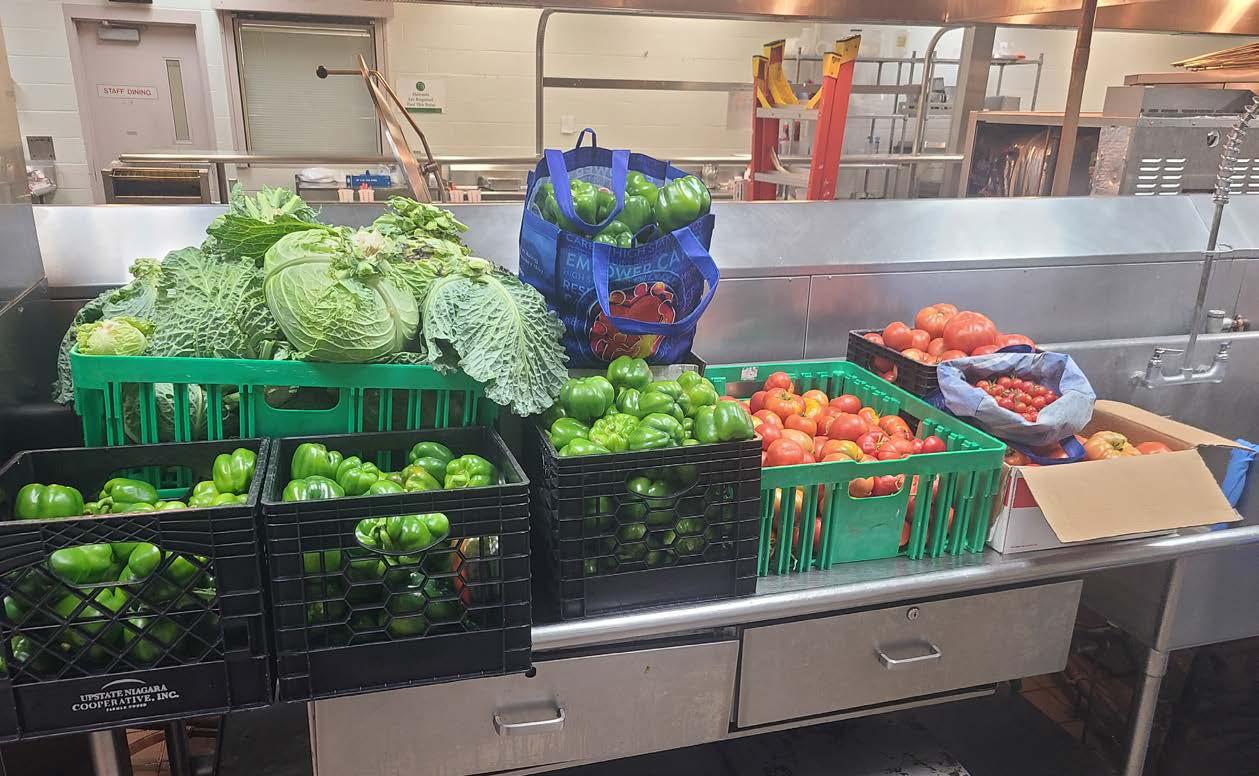
Sow Good
Gardens and Gardeners Thrive at the Steuben County Jail
By Karey Solomon
Inmates at the Steuben County Jail have a growing opportunity to make positive differences in their own lives and in the lives of others. Practical application of new skills and helping neighbors experiencing food insecurity can seem like a fresh start.
“The thought process is that it would give the inmates something to do, an educational program,” says Major David Sutton, jail superintendent. Funded by profits from the prison commissary, the prison began this program at least eight years ago with four raised beds in a fenced area, expanding over the years to twelve larger-than-theaverage-garden sized plots. This year, they expect to add eight apple, pear, and peach trees.
The purpose is at least three-fold or, as Sheriff James “Jim” Allard says, “Win— win—win.” Gardening gives training in a skill that may well prove helpful when residents return to life outside, offering the possibility of more self-sufficiency when
it comes to food. The inmate gardeners learn to use a variety of garden tools, how to plant, tend, and harvest vegetables, and absorb the golden rule of gardening—time put into the project rewards those doing the work with an often-proportional harvest.
And there’s a third element. Each year, the gardeners plan for a sizeable surplus, which helps feed the prisoners and prison staff. About half the harvest goes to the Corning Community Food Bank, supplementing the staples there with wholesome, fresh produce, while giving another layer of meaning to the efforts of those doing the work.
While it’s often impossible to know what effect working in the garden may have on participants, corrections officers have seen few former inmate gardeners return to the jail. While off-duty and shopping in the community, Sheriff Allard recalls, he encountered a former inmate hard at work for an area merchant who praised the
young man’s work ethic. It was satisfying to see how that individual was succeeding after his time inside. Another former inmate has now become a farmer. “I think being held to a standard helps,” the sheriff says.
“It’s what we hope for—to give them some of the tools they could use on the outside to become a productive member of society,” Major Sutton says. “Whether they choose to use that is up to them.” When released, the former inmates will return to being neighbors, parents, spouses, employees. Even better to leave with the sense of accomplishment that comes from having learned, firsthand, something beneficial, despite incarceration.
Inmates accepted into the program have to be serving in the county jail for nonviolent crimes and deemed not a flight risk. In the gardening program, they work at a variety of outdoor jobs including mowing, tending flower beds, rototilling, cultivating, planting, watering, weeding, and picking


Members enjoy endless amounts of indoor and outdoor recreational activities as well our full service restaurant and bar. We take pride in finding every opportunity to get our youth involved in a wide range of activities. We are always welcoming new members! Indoor Archery Range Blossburg, PA
Nursery
Opens: Wed-Fri 4 Sat 12 Sun 7am
Kitchen Hours: Wed-Fri 4-9 Sat 12-9 Sun 7-7

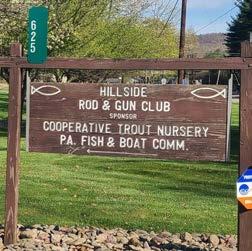


Dine-In for Members & Guests Take Out for Members and Non-Members
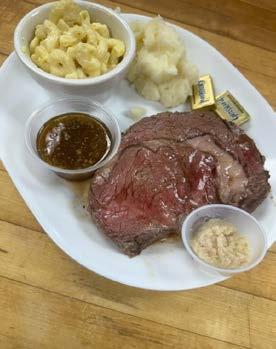
Annual Events: Game Dinner, Coyote Hunt, Predator Hunt, Woodchuck Hunt, Crow Hunt, Lobster Bake, Kids Christmas Party, Fishing Derby, Easter Egg Hunt, ADA Trap Shoots, and many more!



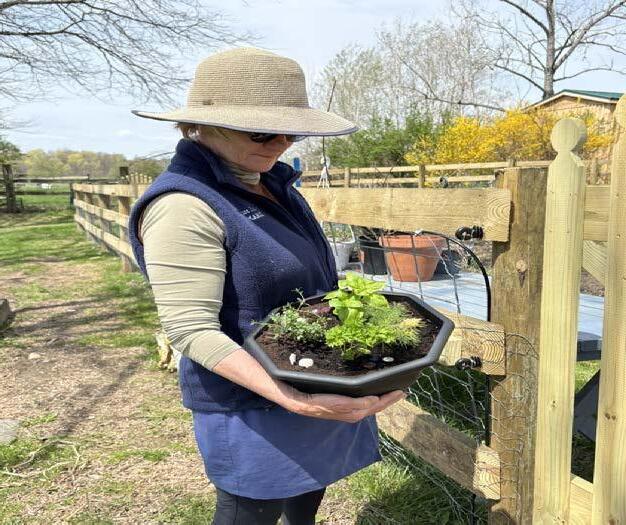
Zip-a-Dee-Doo-Dah
Margie Seiderman has created an educational organic farm where everything is more than satisfactual.
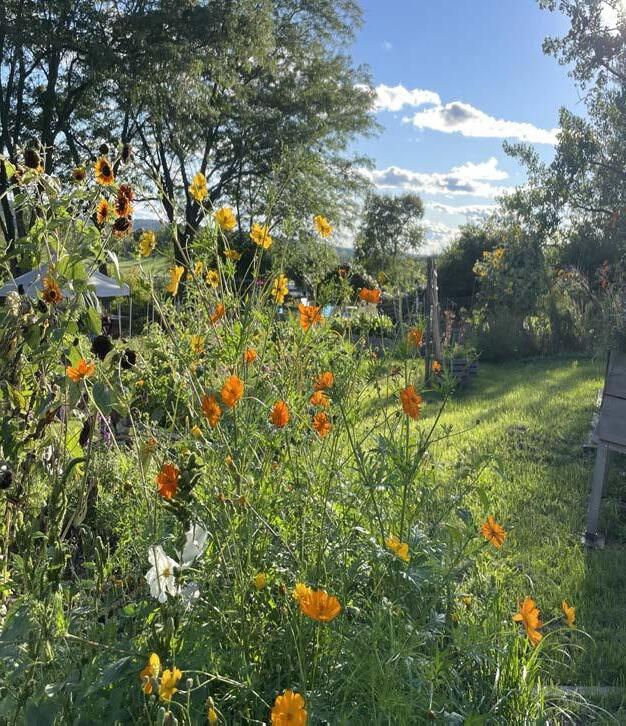
Follow the Bluebird Trail of Happiness
Corning Area Farm Leads Visitors to Vegetables and Joy
By Janet McCue
High on the hills above Corning, 951 Harris Hill Road, to be exact, is Bluebird Trail Farm. The soundscape on an early spring day is filled with the calls of bluebirds, of course, bobolinks, and red-winged blackbirds. Tree swallows swoop over the pond, donkeys bray, Navajo-Churro fiber sheep bleat and hope for a treat, while ducklings cower in the corner of the shed under the watchful eye and occasional piercing squawk of Cornelius the peacock.
Presiding over this spring-time symphony is the conductor, Margie Seiderman. She zips around the farm in her golf cart, checking on the beds being prepped for planting, admiring the tall, bright green garlic scapes, stopping at ponds and outbuildings. One glance at Margie’s calendar reveals this is no typical farm. The schedule is packed with class visits from energetic kindergarteners or farm stays for exhausted urban dwellers, guided nature walks for families, reservations for baby showers, inoculating logs with mushroom plugs for forest farmers, and incubating chicks for home-schooled children. The farm is a beehive (and yes, there are real beehives, too) of activity.
“The CSA is the heartbeat of the farm,” says Margie. Community Supported Agriculture is a partnership between the farmer and community members. Investors or subscribers purchase a share and the CSA farmer provides the bounty. At Bluebird Trail Farm, CSA members can select six to eight fresh vegetables weekly as well as receive seasonal honey, herbs, juice, and flowers. The farm offers two levels of membership. It’s $475 for a small family and $650 for a large family. Fruit and eggs are add-ons. Today, fifty families thrive on their share of local produce from Bluebird Trail Farm. “CSA pick up days are lots of fun because families can visit, feed the animals, pick their own produce and just hang out and enjoy the farm,” Margie explains. Don’t wait to get on the CSA list for next year. By early spring all shares for the 2025 season were already sold.
Margie and her husband, Bill (the beekeeper), bought the farm in 2002 “to raise our four children on a homestead so they could help grow our own food, explore the environment, and hear the birds.” In 2012, Margie made a professional leap, moving from teaching high school English to launching Bluebird Trail Farm. Her edu-
cational philosophy travelled with her, because the enterprise is very much education focused.
Margie’s goal was to create a farm where children and families could learn about farm animals in a safe and clean environment. She is supported in this endeavor by nature educators from nearby Corning Community College as well as by WWOOFers. Worldwide Opportunities on Organic Farms is a global movement linking visitors with organic farmers. Both an educational and cultural exchange, the visitor gains skills in organic farming and sustainable living while the host farmer benefits from the WWOOFer’s help with farm chores. Host farmers provide accommodations and meals.
Sina, a former WWOOFer from Germany, is by the rabbit hutch holding a month-old bunny. She began volunteering at Bluebird Trail Farm three years ago. She now chooses to spend part of her vacation from her professional career as a regional sales and marketing manager outside of Cologne, Germany, volunteering at the Corning farm. It’s her first spring in the Finger Lakes, and, she likes what she sees.












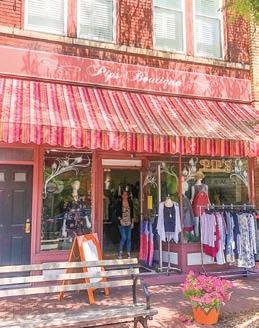









412 N. Franklin St. • Watkins Glen, NY 14891
9am-8pm • Sun 10am-8pm *Subject to change based on NYS
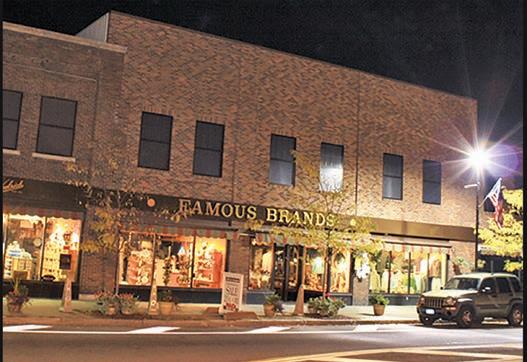
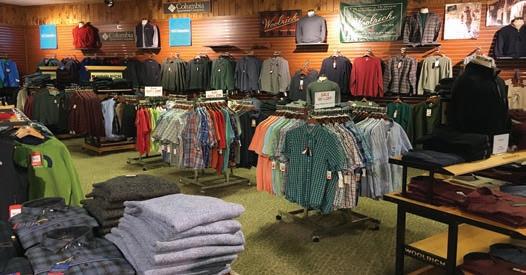
Margie had a second goal for her farm, and credits her good fortune in meeting Monika Wood, a local naturalist and accomplished photographer, for helping make it happen. “Monika brought life to the forest, the fields, the streams, and the meadow on the farm, and I will be forever grateful,” says Margie. She helped the farm develop bird walks, nature trails, and wildlife experiences for local families.
Hiking the mile-long Bluebird Path with its thirty-plus nest boxes, it’s easy to spot Monika’s handiwork and share Margie’s gratitude. The farm hums with a crew of a dozen people, each working part-time, each committed to education. The nature educators are either retired teachers or college instructors, who come to the farm after their semesters are done. They lead hikes, help school children identify birds and wildflowers, and partner with families learning forest farming techniques. “Most of our staff teaches, gardens, and leads farm tours. So, they do everything,” says Margie.
Just walking around the farm is educational. Trees are labeled, local artists created large display boards, each with vibrant photographs, depicting the parts of a flower, another, the parts of a bird.
The summer 2025 calendar includes fairy gardens and firefly events. Visit bluebirdtrailfarm.org for full descriptions of seasonal activities and registrations.

Margie is a lifelong learner, taking advantage of classes and advice from Cornell Cooperative Extension and information-sharing opportunities from the farming community. Not afraid to take on new challenges, the farm recently expanded into forest gardening. Margie admits that this type of gardening “really stretches us to look at resources, the landscape, and how to grow food in a forest environment.” This summer she’s also pioneering a technique for growing strawberries that is new to her. Shiny new gutters attached to fences bordering a garden are ready for strawberries. The method keeps the plants off the ground, cutting down on weeds and rotting fruit, while making efficient use of the space. She has her green thumbs crossed that the new technique will be a success.
If farmers had coats of arms, Margie’s shield would feature a cornucopia of vegetables with the Latin motto: Agricola, Educatio, Gratis (Agriculture, Education, Gratitude). Just as education is an underlying philosophy of Bluebird Trail Farm, so is gratitude.
Thanks to the team and so many hands who support the CSA for the participating families—“We are thankful for every one of them,” she says—members enjoy locally-sourced produce grown using organic techniques. Monika and the “wonderful team” of nature educators all help make the farm successful. But first on her list is Bill, who also happens to be her best farmhand and supporter. “Without Bill there would be no Bluebird Trail Farm,” she asserts.
With a great crew and a full crop of CSA participants, what’s her biggest challenge? She doesn’t hesitate with her answer. “The weather.”

Janet McCue is a freelance writer and avid hiker. She’s the author of two award-winning biographies: George Masa: A Life Reimagined (2024) and Back of Beyond: A Horace Kephart Biography (2019). Like Masa, she’s a follower of the philosophy of “More Walk, Less Talk.”












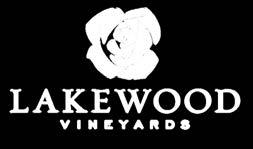
Welcome to MOUNTAIN HOME WEDDING

Sophia Photography

Wedded to Place
Sung Harbor Restaurant and Hotel provides a historic lakefront backdrop for people trying a new dish or starting a new life.
Still Hugging the Harbor
Hammondsport’s Snug Harbor Offers Space to Celebrate
By Ann E. Duckett
If a gloriously designed and historically significant building could speak to a region’s history while welcoming today’s guests with modern amenities, that building would be Snug Harbor Restaurant and Hotel. Minutes from the village of Hammondsport, at 9068A Snug Harbor Drive, sits this jewel— one of the few remaining nineteenth century era establishments excelling at food, drink, and thoughtfully curated accommodations in the Finger Lakes.
Enamored by the beauty of the region, Major John Slocum purchased a small cottage situated at the southwest end of Keuka Lake in 1889, tore it down, and built the terracedstyle, three story hotel that stands on the half-acre property. Named the Ruby Cottage Hotel in honor of his daughter, Slocum was famous for entertaining and hosting friends
for summer stays. Short-lived, the hotel was purchased by Simeon Rathbone in 1895, renamed Snug Harbor, and became his private residence.
Over the next century the building changed ownership but remained anchored in hospitality as it reverted to a restaurant, became a dance hall, and again a hotel. Unassumingly, it sits low from the road and is just a few yards from the lake’s edge. The vibe is serene; the view is breathtaking. Adding to its splendor are expansive outdoor seating options like the lakeside boardwalk, patio, and inviting verandas, plus twenty boat slips, and a private entrance leading to two of the three suites (with French doors opening onto private lake-facing balconies) just steps from the main building. The balcony suites have AC, full kitchens, and room service available for
those who don’t want to bother with cooking. With a fresh perspective, Snug Harbor is an updated and inviting spot for families, intimate gatherings, and hosting retreats or weddings.
“We’ve been very fortunate to partner with Tim Tompkins, owner of the property. He manages the suite rental, ten boat slips available for seasonal rental, and the desserts on the menu, so we work very closely together,” says Jeff Yaniak, operating partner. “There are two of us managing the restaurant, now in our third season. When Tim approached us about running the venue, we all agreed that continuity in our hours and consistency in our dishes was going to be important to our success. The emphasis today is on providing an exceptional dining experience with a welcoming casual feel in this beautiful setting.”
MOUNTAIN HOME
Popular must-haves on the menu include family-style meals, priced per person, and sharing boards like the Butcher BBQ Board “allowing for a more social dining experience,” says Jeff. “We’ve added new menu items and expanded our dockside dining for the convenience of our boating guests. The grilled shrimp tacos and burgers are some of our best sellers on the water. Order ahead and we’ll have it waiting dockside for you.
“We work directly with local farms to source meat and vegetables when available, and we use Carney Agri Farm for all our microgreens and specialty herbs,” he continues. “This allows us flexibility with our menu because ingredients change quickly. We are always striving for high quality for our guests.”
Operating on a three-month business cycle requires flexibility and creativity to stay on an even keel. “The seasonality can be challenging, but we offer so much for our patrons who either live nearby or who come to take in the beauty of this area for the first time,” Jeff says. “With the recent addition of our third efficiency suite on the main floor, families can book the entire property for reunions or weddings. They can relax together, get ready for the event, and enjoy family-style meals and award-winning Finger Lakes wines, craft beer, or spirits. We can cater bridal parties, welcome receptions, and rehearsal dinners, seating between seventy-five to 100 guests. We close the restaurant and set up tents as needed.”
Once again Snug Harbor is a beacon among the iconic places to visit in upstate New York, satiating appetites of those exploring the area. Many come for hiking, biking, boating, fishing, local food, and international award-winning wines. The eleven Finger Lakes are home to more than 140 wineries, thirteen of which are located around Keuka Lake. More than 100 breweries and brew pubs offer another taste of the innovations in the beverage world that has caught on here.
Considering what’s on the horizon for Snug Harbor, Jeff notes, “This place has changed hands numerous times over the years and at times it’s been empty. It was rebuilt after a fire seven or eight years ago. Fortunately, there is a strong sense of community and support for one another from the farmers to the wineries to other restaurants; we have a dedicated staff, a nice network of people to pull from in the area for various resources, too. Most important, we appreciate the support we receive from our neighbors, new friends, and first-time guests to the region. Ultimately, it’s about exceeding expectations. That’s what we focus on. But—taking in the incredible view of the lake is something we all get to enjoy.”
Snug Harbor is open from Memorial Day through Labor Day. Hours of operation are Wednesday and Thursday, 4 p.m. to 8 p.m.; Friday, 4 p.m. to 9 p.m.; Saturday and Sunday, noon to 9 p.m. Check Facebook for upcoming events and live music. To make restaurant or suite reservations, or to peruse what’s on the menu for this season, visit snugharborkeukalake.com or call (607) 868-7684.

Ann E. Duckett, owner of Little Bleu Catering and Events, is a certified cheesemaker and recovering cheesemonger, who now devotes her time to educating and helping others find their cheese bliss through classes, presentations, and special events.




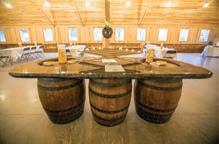


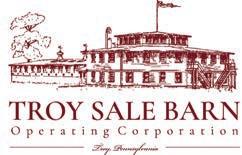

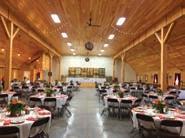



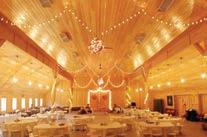
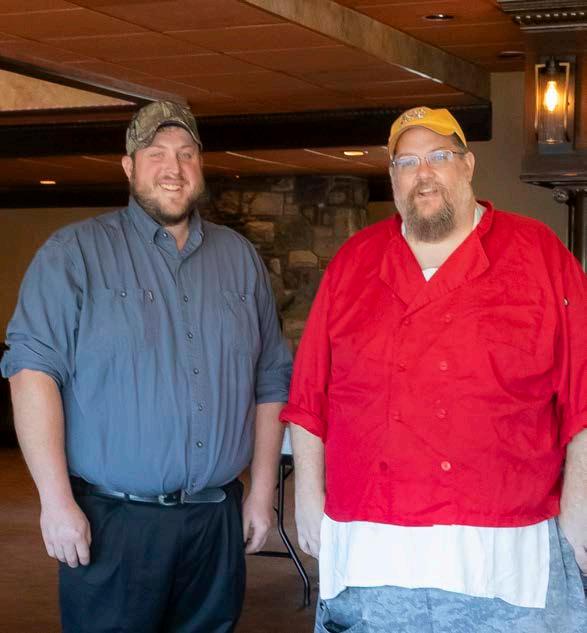

Reprise Party
Callen Calkins cast Aaron Hulslander (right) as the in-house caterer for Lambs Creek Weddings and Events in Mansfield, making this two-man show a sure hit.
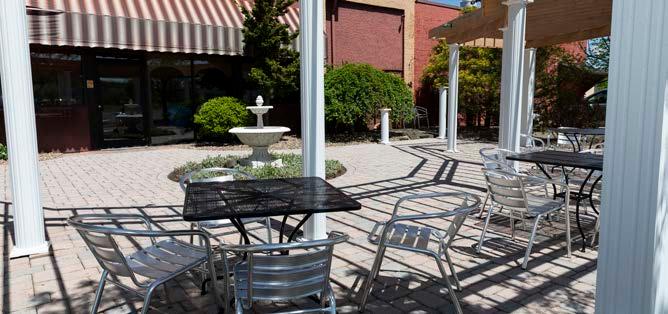
Raise the Curtain
Cast & Crew Takes the Stage Again in Mansfield
By Carrie Heath
The comedy and tragedy masks have been put away, but the gloriously improvised menu lives on! That’s right, local favorite Cast & Crew is coming back in a new role as the in-house caterers for Lambs Creek Wedding and Events. Fans of the original production will be thrilled to know that many of their favorite dishes will be available for encore performances.
Aaron Hulslander developed his generous and innovative cooking style through stints at Bonanza, Timeless Destination, and the Penn Wells. He impressed local foodies with an extraordinarily diverse menu at his improvisational restaurant, Cast & Crew, which drew people for years to its quirky location in Mansfield. Aaron says the menu was created through audience interaction. He would try new dishes, and anything that the crowd loved was added to the repertoire. Cast & Crew was a place where family and friends gathered to celebrate, and couples visited for a romantic evening out.
A Tioga County resident since elementary school, Aaron has found an outlet for his creativity these past few years through teaching sixth grade. He credits his students’ energy with revitalizing him after having to make the tough decision to close the restau-
rant. Aaron had some bit parts with catering jobs here and there since closing Cast & Crew, but is now happy to return to the limelight as the in-house caterer for all events at Lambs Creek Wedding and Events. The new owner, Callen Calkins, offered him the part, which will include satellite performances off premises.
Callen purchased the Lambs Creek building in January and has been hard at work renovating the venue to make it the perfect setting for any special event. The curtains are open now. Inside, the building can accommodate thirty to 300 people for birthday parties, showers, holiday events, and meetings. The interior lighting has been updated to provide romantic ambience in the evenings. And yes, that amazing bar imported from Ireland is still the melodramatic centerpiece of the space. Backstage, the gorgeous terraces have been cleaned and the landscaping updated to prepare for their starring role this summer. This area can host an additional 300 people, making the space ideal for large events like weddings and proms. Keep an eye out for some upcoming command performances! Aaron and his crew are planning on hosting romantic date night tasting menus at the venue this summer.
Like many theaters, this locale seems to have a resident ghost. The previous owner, Nelle Rounsaville, has appeared as a bird trying to get back into the restaurant while repairs were made. Although the little songbird approves of the new decor, she does not like the new owners’ taste in music. On several occasions when they were working on the scenery, the soundtrack would mysteriously switch to an oldies station.
So, if you have a special occasion coming up, or have missed a favorite dish from Cast & Crew, want to see that incredible bar one more time, or hope for a ghostly encounter with a friendly spirit, you may want to consider reserving the space for your own event. Lambs Creek Wedding and Events is located at 200 Gateway Drive, Mansfield, and is booking events now. Reach them at LambsCreekWE@yahoo.com or (570) 404-5780. Contact Cast & Crew Catering LLC on Facebook or by emailing them at castcrew6620177@gmail.com.

Carrie Heath makes a mean margarita and loves to experiment in the kitchen. Her spice rack would be the envy of medieval kings.


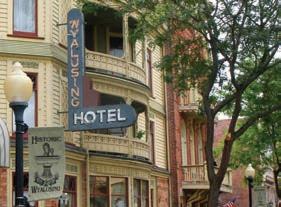





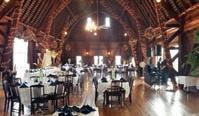
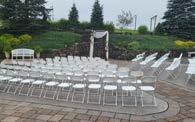




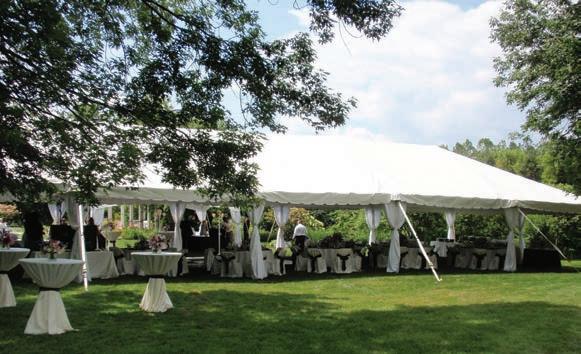

Local Color
Walter and Luella Fox use recycled plastic material to create long-lasting, low-maintenance Adirondack furniture.
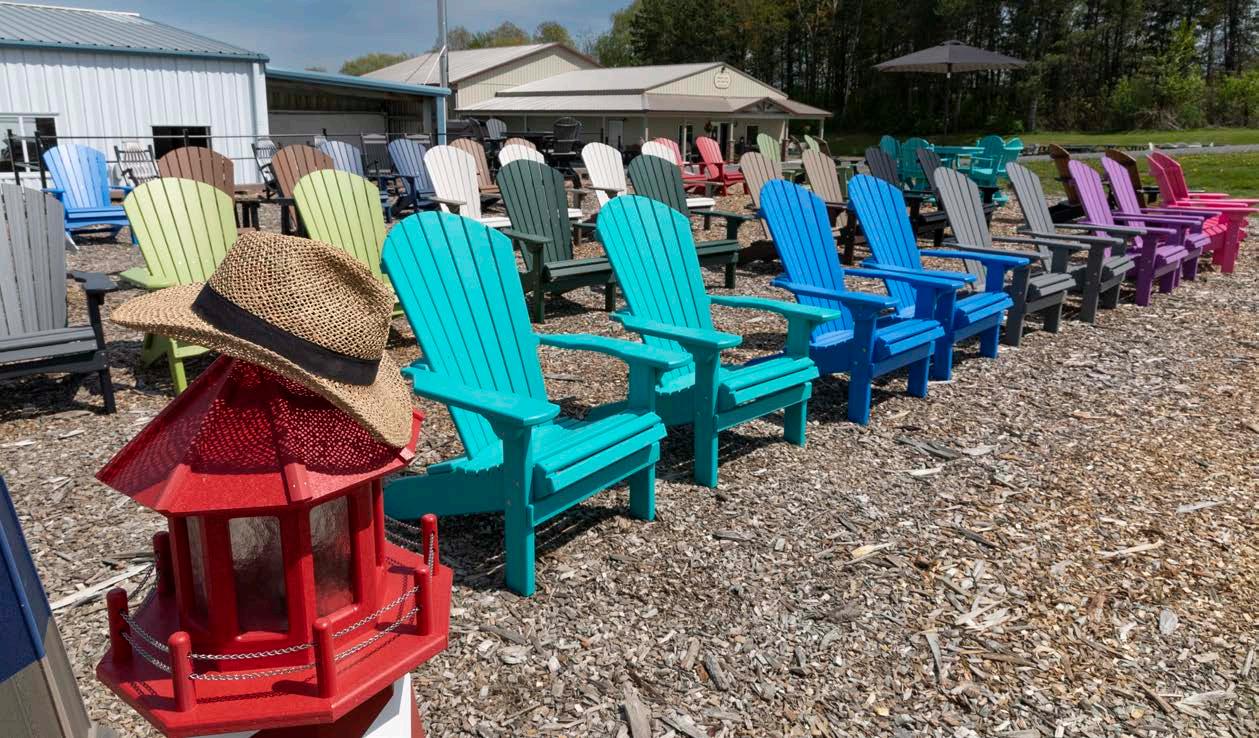
Have a Seat!
Penn Yan Husband and Wife Team Help You Love Your Lawn
By David Higgins
This is the story of a husband and wife, Walter and Luella Fox, and their family business, Finger Lakes Lawn Furniture, in the heart of Yates County.
Let’s start with the furniture itself, which is all made from polywood. It’s sturdy and will last for generations. It’s smooth and comfortable. It’s waterproof, and impervious to bugs and mold. It’s slightly heavier than wood, so it will stay in place during the strongest winds, yet is light enough to be moved around by an ordinary person.
There are many models and varieties available: traditional Adirondack chairs, balcony settees, gliders, complete dining sets, porch rockers, garden benches, picnic tables, chaise lounges, patio settees, and porch swings.
It’s colorful, too, from vivid primaries all the way to earth tones, and all in many different combinations. The pigment is saturated through every piece, so there’s no chipping, no need to retouch, and (thankfully) no slivers! Wood-toned pieces are made with
a texture that could fool even a woodpecker. Longer pieces, such as those used in picnic tables, are reinforced with strong aluminum spars so they will never bow or sag. Polywood, or HDPE, is a high-density polyethylene made from recycled plastic material. It’s the ultimate in easy-care, and thus is perfect for getaway cottages which are meant to be an escape from routine chores (such as caring for wooden furniture).
Most of all, Walter and Luella’s products are an excellent quality. There are currently twenty-nine Google reviews of the shop online, and every single one is a five-star review.
“Customers tell us we are unmatched in value,” says Luella.
Their furniture has found its way to Canada, the Carolinas, Michigan, and several other states. “We don’t ship, but customers find a way to get our products home. One of them transported ten pieces of furniture all the way to Florida on top of a truckload of cabbage!” recalls Luella with a chuckle. One true indicator of customer
satisfaction is repeat customers, and the Foxes have plenty of them, such as Nick and Tammy Schoonover, of Tioga County, New York, who have no less than fifteen pieces plus a complete dining room set.
“We go back seventeen years—a long, long ways,” says Nick. “Walter and Luella have the highest standards and the best pricing, and they build a very good personal relationship with their customers. Their reputation speaks for itself.”
Walter and Luella make most of the furniture by themselves, assisted by Walter’s nephew two days a week over the winter. Walter does the heavy lifting, but Luella handles the hardest task—namely, the paperwork!
Walter and Luella were both born in Lancaster County, Pennsylvania, and their families independently moved to Yates when they were of school age. They met while attending the same one-room schoolhouse, which is still there, just outside of Penn Yan. Hard work and fine craftsmanship run in












welcome to POTTER COUNTY

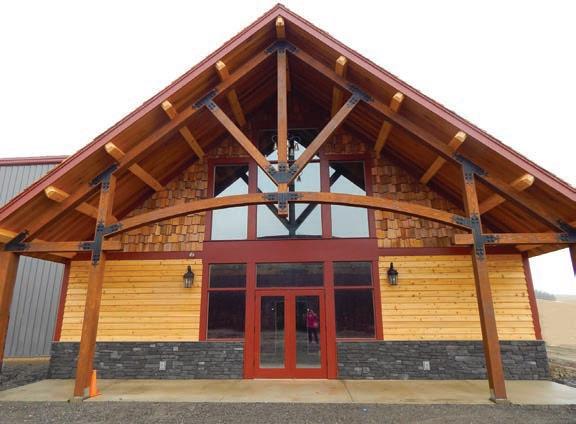
both sides of the family; Walter’s folks tend to be carpenters and Luella’s to be cabinet makers. Luella’s father, at age eighty-three, is still making bowls and trays to sell, and her brother, Sylvan Horning, is currently a master cabinet maker based in nearby Dundee.
“My father was a skilled carpenter, based in the area of New Holland, Pennsylvania, and worked every day until he passed,” says Walter.
Around the year 2000, Walter was looking for carpentry work to do at home. He began making furniture on a wholesale basis on their farm on Sherman Hollow Road. It was satisfying work; Luella helped, and together they built up a reputation for value and craftsmanship. As their business grew, it made more and more sense for them to move from wholesale to retail, and thus sell directly to the public. But this was a major risk. It meant finding a good location, moving the whole enterprise, and then trusting customers to follow.
Luckily, the Foxes found the perfect spot, right on Route 14A. The shop itself is a destination, surrounded by the green fields of Mennonite and Amish farms, and it’s conveniently placed between two very popular destinations, just a mile north of the Windmill Market and a mile south of Oak Hill Foods. They did some extensive refurbishing of the property and it now has a large workshop with a separate showroom—all of it spotlessly maintained. The Foxes made a major investment in 2020 by purchasing a stateof-the-art CNC machine (Computer Numerical Control) to automate the carving and cutting of the products. It proved to be a vast savings on labor. “The year before we got it, I cut thousands of pieces on the bandsaw…and that gets old!” says Luella with a smile.




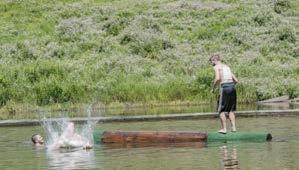
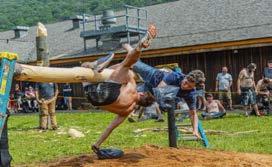
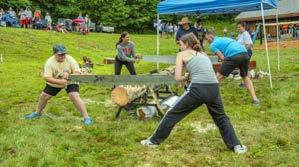


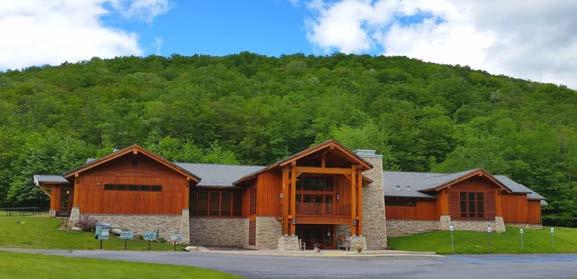

They opened their new retail location in 2024 and have thrived ever since.
“We meet so many nice people,” says Luella, and adds, with understatement, “We enjoy what we do…let’s put it that way.” Their fourteen-acre property lies snugly on a ridge between Seneca and Keuka Lakes, where “the sunrises and sunsets are spectacular.” The Foxes have a kitchen garden, and a little pond out back draws deer and blue herons and, of course, foxes. In their vacation time, Walter and Luella have taken boat tours of Keuka Lake and have been tickled to see many of their chairs on the porches of the lake houses along the water’s edge.
The shop is located at 3607 Route 14A, five miles south of Penn Yan. From April to July, they are open six days a week from 9 a.m. to 5 p.m. During March, August, September, and October they are open Saturdays from 9 a.m. to 5 p.m. They are closed on Sundays and all Christian holidays. Walter and Luella are usually on the premises; the posted hours are for the convenience of those driving long distances. Customers are welcome to drop by or call for an appointment at (315) 536-1146. That’s a landline, so please, no texting. They have a fax machine for detailed inquiries at (315) 536-2840 and fllawnfurniture@ibyfax.com.

David Higgins is from the small town of Deposit, New York. He retired in 2021 from Corning Community College, where he taught art for thirty years.











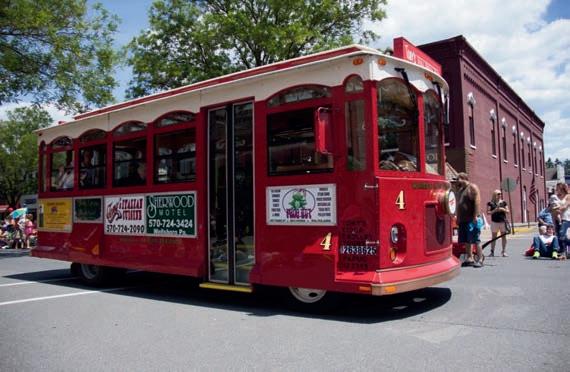

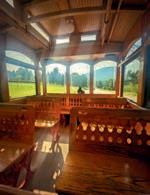


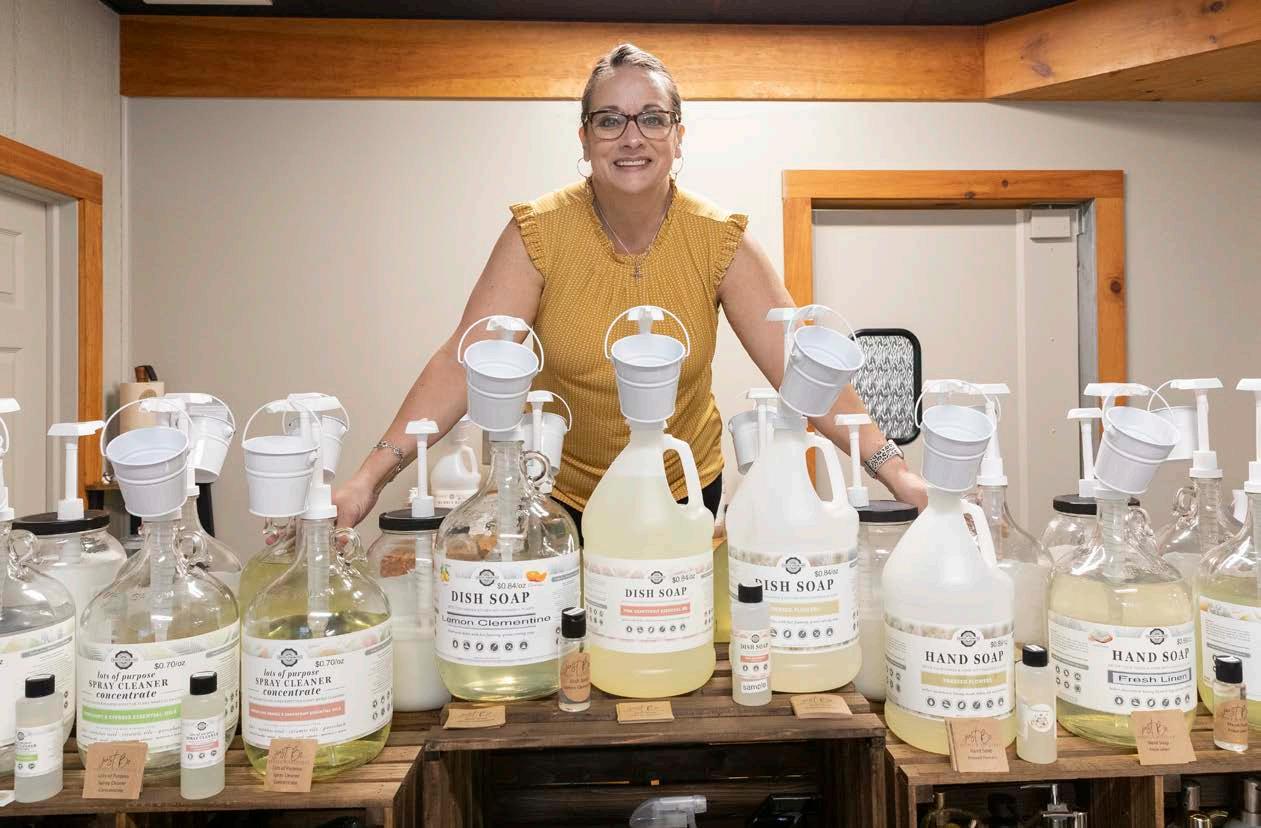
Just Good Business
Lisa Enders knows what's good for the planet is good for people, and offers endless options for keeping houses (and consciences) clean.
Filling Jersey Shore with Kindness
New Refillery Sustains Community and Customers
By Don Everett Smith Jr.
It started around July 4, 2024, when a mysterious message popped up on Facebook—“Coming soon!!!”—along with an image that said, “just Be...Market & Refillery,” followed by explanations about what a refillery is and what to expect from the “just Be...” market.
For the next few weeks, other intriguing posts followed, including: “In a world where you can Be anything...just Be kind,” pictures of a shopfront at 909 Allegheny Street in Jersey Shore (across from the Jersey Shore YMCA), progress of the interior renovations, and one of owner Lisa Enders, standing in front of her store, smiling, the word “Faith” written in the shape of a cross on her shirt. The caption promising “Coming Soon...”
Soon pictures of products began to appear. By July 30, Lisa’s post put out the question: “Are you ready to ‘Be a refiller?’”
Finally, just Be...Market & Refillery opened on Monday, August 5.
Hmmm. So what is a refillery? The term might be new, but the concept isn’t. Think growler, propane tank, or the gas can you take to the gas station to fill up. First, a glass container is weighed. The customer fills it with the desired product, then it’s weighed again, which determines the cost. The customer pays for the product, not the container, and when the container is emptied, it can be returned and refilled rather than being thrown away.
In the ensuing months, her business, products, and customer base have expanded. Lisa explains that her business and life philosophy is in three words: “just be kind.”
“In an effort to eliminate the one-use plastic containers that fill our landfills and contaminate our environment, just Be is a place that you can bring your own con-
tainer, or purchase one [here], and fill it with our nontoxic, plant-based products,” she says. “Doing this is being kind to the planet, specifically being a good steward of the planet humanity has been given.”
She explained her store offers laundry products, hand soap, dish soap, shampoo, conditioner, and other cleaners that are free of extraneous chemicals and other ingredients that may be harmful. Customers can buy as much or as little as they want, so it’s easy to try new products.
A great example of her admitted “hippy philosophy” is her aversion to toothpaste tubes.
“Where do the tubes go? Into the ground? Over 400 million toothpaste tubes. That can’t be good,” Lisa says. “This is why we sell toothpaste tablets. They eliminate the need for toothpaste tubes.” The tablet works like this: put it in your mouth, chew
on it, it develops a foam, then brush.
Just Be also offers local handmade goat’s milk soap, locallycollected honey, and soy wax candles, along with “kitchen, laundry, and bathroom decor to finish off the effort to refill and reuse with a touch of class,” Lisa says.
She calls this “nontoxic way of life” another way for people to be kind to themselves and their family.
Her personal credo for kindness came from the most basic of places—her faith.
“I believe in God and Jesus, and it is safe to talk about faith here,” she says with a smile. She sells T-shirts that proclaim her faith, and framed Bible verses hang on the wall. When asked what inspired the idea to open the refillery, Lisa says she had been wanting to start a small business. Then she happened upon a refillery (there are a few others in the area—Watsontown, Coudersport, and Ithaca) and the idea connected with her.
“Jersey Shore was a great place to open something like this,” she says.
Her view is that humans, especially people of faith, should be stewards of the creation left to them by the Creator. This means, to her, humanity is working hand in hand with a higher power to make the world better. Her way of treating the world in a kindly manner is not cutting one giant swathe of ecological change, but in several smaller acts of kindness, especially in Jersey Shore.
“I make sure to buy locally,” Lisa says. “I want to help other businesses and sell their products. This way both their products and my store benefit from it.”
She said if members of the community were to make several minor changes in an environmentally friendly direction, the results could be incredibly positive.
“I really love their commitment to using environmentally friendly and high quality products,” says Elizabeth Taylor, a Jersey Shore wife and mother and just Be patron. She says Lisa’s products are not only great for the home and family, but also “make great gifts!”
Customers who are interested in assisting a local business are always invited to donate glass jars.
“[We are] always looking for glass jar donations to use in the refillery,” Lisa says. Bring clean jars to the store, and they will take care of the sanitation process.
After less than a year in business, Lisa says she “can’t help but to feel humbled and overwhelmed by the grace and blessings God gives us every day.
“This was a dream, and today it is a reality that I could share this initiative with my community. Family, friends, neighbors, and new customers amaze me each day with their overwhelming support.”
For more information, including current hours, find them on Facebook or call (570) 220-1385.

Don Everett Smith Jr. is an author and journalist who writes history, true crime, horror, and pulp. He lives with his wife, Laura, and their cats in Lycoming County.




Our Local Queen Candidates

























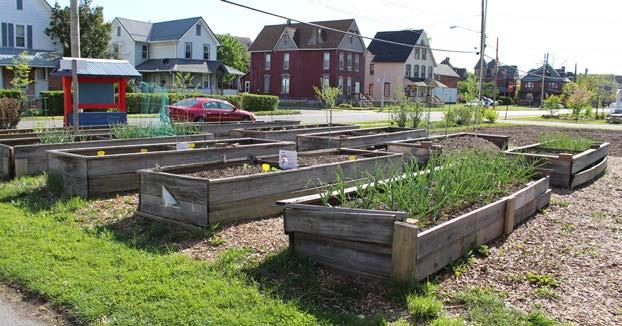
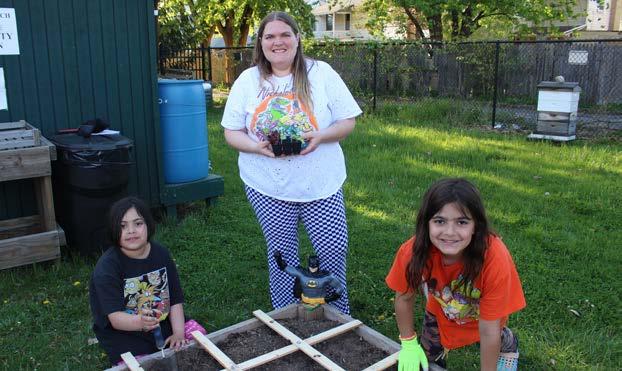
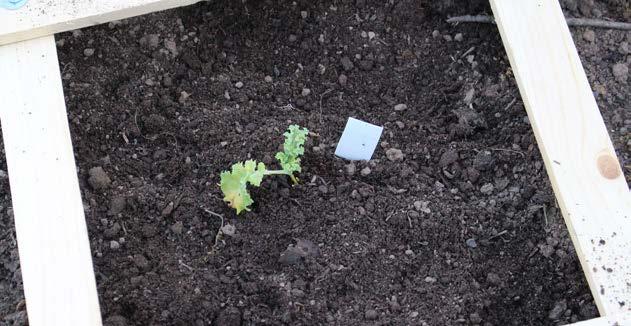
Planting Healthy Habits
The Salvation Army's (top left) and Trinity Episcopal Church's (top right) gardens provide plots for community members, like Apphia, Kaia, and David Erskine (bottom left) and others to grow what they want.
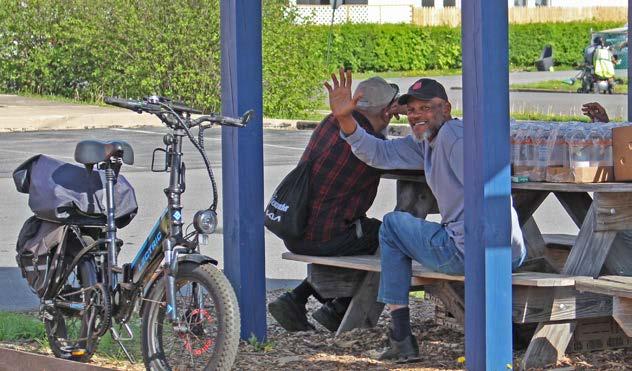
A Tale of Two Gardens
Growing More than Vegetables in Downtown Williamsport
By Don Everett Smith Jr.
Community gardens are (pardon the cliché) growing like weeds, or maybe zuchinni in July, in urban areas. Proof of that—twice!—is right in the heart of Williamsport. At 724 Park Avenue, behind the Williamsport YMCA and across the street from the Williamsport branch of UPMC, is the Salvation Army Community Garden and Urban Farm. Over at 844 West Fourth Street, behind the Trinity Episcopal Church, on a plot of land leased from the Park Place company, church members and attendees have boxes for residents and community groups to grow flowers and vegetables.
The purpose of these community gardens/urban farms are to beautify the local neighborhoods, offer education, and provide food for people who need the extra help.
One third grader who lives in Williamsport with his mom and sister has seen firsthand the power of what a garden can do. Meet David Erskine, and his younger sister, Apphia. David discovered working with his hands spending time in the Salvation
Army’s garden two summers back. He and Apphia, along with their mother, Kaia, have been working with gardens ever since. It has changed David’s life for the better.
He says he’s happy to be working with his mother and sister on this.
“Gardening can relax your mind,” David says. “If something bad happens or something weird happens, then you can just think about stuff [like gardening].”
“Many times, I talk about David when I'm talking about the garden,” says Sid Furst, master gardener and volunteer leader of the Salvation Army Community Garden. “If you charted his behavioral characteristics, he was wild. But [after eight weeks in the garden, thanks to summer camp], he became extremely focused, extremely interested, and extremely involved.”
When Lycoming College students “pulled up in a van [to volunteer], David got up from the picnic table and walked over to the van and said to the students, ‘I’m your guide,’” Sid recalls. “Even after the summer, David and his sister continued volunteering in the garden.”
Sid explains that the garden fits in with the mission of the Salvation Army, which is the “spread of the word of Jesus Christ in a nondiscriminatory way that helps people.”
And there are always people who need help. Sid estimates as many as 40,000 Lycoming County residents (total population is 114,188, according to the 2020 census) are having food insecurity issues.
“They’re having nutrition issues, which means well-being. And they’re having whatever social, emotional impact all that has. Gardening, not only in terms of growing things but the socialization, the physical activity, the emotional activity, the spiritual activity, all help the total well-being. Gardening gives the power of hope and the power of a positive attitude. In many ways, [gardening] is a powerful medicine in your body.”
This is not the first time this garden has helped a family.
“There was a woman and her son who came here. I was working in the back garden where we had tomato plants,” Sid remembers. “She said to her son ‘Look at those
tomatoes, aren’t they beautiful?’ and her son said, ‘Oh they’re so beautiful I wish I could get you some.’”
Sid says the woman turned to him and admitted she was unable to afford them.
“I said to her, ‘Every tomato in this garden is a tomato for you,’” and then he helped her bag them. “I realized this garden can’t solve the world’s problems but it can help an individual one at a time.”
Nearby is the garden program members of the Trinity Episcopal Church have established. It’s a second green space where the Erskine trio have planted themselves.
The Trinity garden got its start in the fall of 2022 with ten raised garden plots filled with enriched soil. Father Ken WagnerPizza says this garden gives Trinity a chance to “reach back to the community and help there.”
The hope, he continues, is that “this would, in a tangible...way, be a piece of healing of both creation and relationships as part of the beloved community of Williamsport.”
He adds that much of the financial credit for creating this garden goes to Shaped by Faith, a grant program from the Episcopal Diocese of Central Pennsylvania, and donations from local businesses, community members, and parishioners. Through the Seed to Supper garden classes offered at the church by Warren and Lee Robinson, the three Erskines became caregivers of one of the ten garden boxes.
In David’s words, “It feels great to be back in the garden!”
“[There is an] extreme improvement in his self-esteem, and I think that’s helped his overall behavior,” says Kaia. “David had to repeat second grade and he felt the need to try to be extra funny and extra cool, to win people over, but when he became so passionate about gardening he no longer felt the need to be the silliest person in the room. It gives him an outlet.”
“I love going to see new people here,” Apphia chimes in. “I’m also really excited to see the plants grow up and then we can see how big they get. My favorite ones would probably be the cauliflower, broccoli, carrots, and tomatoes.”
“I like them both [flowers and vegetables] but I like sunflowers,” David says. “My favorite is fruits and vegetables because I really like apples, carrots, corn, cucumbers, oranges, bananas, and all that kind of stuff.”
There are probably never going to be oranges or bananas growing in Williamsport. But, thanks to the two opportunities for gardening offered by the Salvation Army and Trinity Episcopal Church, David, Apphia, and Kaia Erskine, and others without home gardens, can grow their gardening skills, and will always have a place to bond and to help their neighbors.
Find out more at pa.salvationarmy.org/williamsport-pa and at trinity-williamsport.diocpa.org.

Don Everett Smith Jr. is an author and journalist who writes history, true crime, horror, and pulp. He lives with his wife, Laura, and cats in Lycoming County.

Meredith Eachus Armstrong | Elizabeth Z. Bennett
Jean E. Downing | Peggy Blei Hracho | Cecilia J. Rusnak
June 4–July 24, 2025
RECEPTION
Sunday, June 8, 2–4:30 p.m., with gallery talk at 3 p.m. EXPLORA TIONS & CONVERS A TIONS
gallery.pct.edu


858 West Fourth Street, Williamsport, PA
Law and Justice in Lycoming County
The Lawyers and Judges Who Make It Work June 10 - August 31
An exhibit prepared by the Lycoming Law Association and hosted at the Thomas T. Taber Museum of the Lycoming County Historical Society
A series of informative lectures will accompany the exhibit.
For more information please visit: lycolaw.org • tabermuseum.org
Nessmuking About
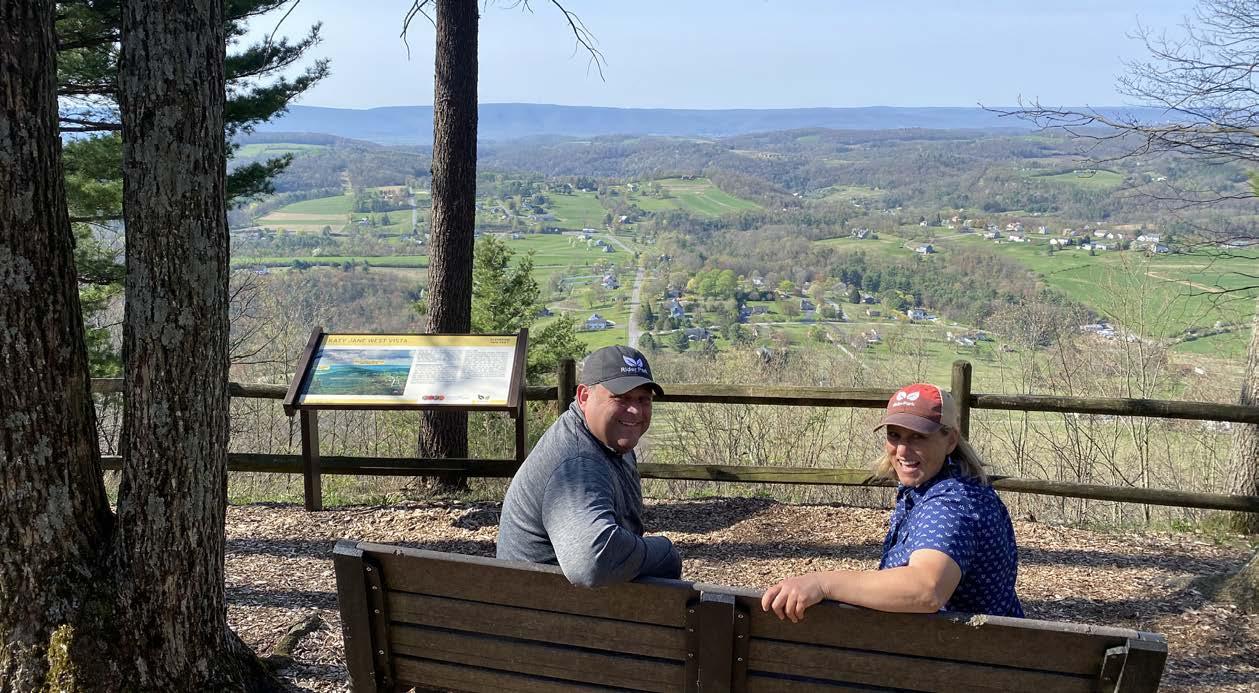
Enjoying the Long View at Rider Park
By Lilace Mellin Guignard
I’m lucky enough to live in a place with four distinct seasons, and when my first hike in a new area occurs in early springtime it always feels presumptuously intimate. There are the ephemerals, wildflowers that bloom during the fleeting period when soil thaws and sun can reach the forest floor before branches wave their green fans. Scantily clad trees are everywhere. I get a glimpse into something private that will soon be clothed and shuttered appropriately.
Spending time outdoors for me has always gone hand-in-hand with a relaxing of propriety, so, rather than feel embarrassed as I wander trails at Rider Park just north of Williamsport in late April, I revel in such access. The weather has been seesawing but the day is gloriously warm, and I’m accompanied by Sara Street (above right), the park manager, and Steve Simms (above left), CFO who oversees the park budget and finances for First Community Foundation Partnership of Pennsylvania. Steve confesses he’s using us as an excuse to get out of the office. The late Thomas J. Rider, who is the reason Rider Park exists and offers free access, would heartily approve of Steve’s pri-
orities. Rider believed in the importance of balancing work with the health benefits of outdoor recreation. In this spirit, Sara leads us from the upper parking lot into the woods toward our first vista on the Katy Jane Trail.
The dark shiny bark of black birch is on full display, with hemlocks scattered throughout giving a primeval feeling. “Some call black birch the thugs of the forest,” Sara says, because they move into open areas so fast. It’s good firewood—high BTUs—but hard to split. Before becoming the first Rider Park manager in 2021, Sara worked with a consulting forester here, among other things giving injections to hemlocks in hopes they can survive the wooly adelgid onslaught rampant throughout the east coast. Her background is in landscape architecture, ecological restoration, arboriculture, and park management.
Sara points out May apples that have barely pushed through the layers of brown leaf duff. We are careful to step over emerging fiddleheads that don’t recognize the danger of trails to small, tender things. Deer, however, recognize the park as a refuge from danger since hunting is never allowed there.
We’re looking at our feet when the buzzy song of the black-throated green warbler floats down, and even though we can’t see it, it brings to my mind a favorite stanza from Nessmuk’s poem “May”:
A time to feast the soul, the eyes; To watch each bird that passes; And half surmise that birds are wise, And men are only asses.
Nessmuk, who as an adult claimed Wellsboro as home, lived a short time in the nearby Little Pine Creek Valley and wrote about Penns Woods in prose and verse until his death in 1890. His days on this earth ended on May 1, making the last stanza of this poem resonate even more:
And then, to turn and raise the load, With weary shoulders bending, And take the old, well-beaten road That leads—unto the ending.
As we move up the gradual incline, Sara describes the many personas of the park. The south where the Katy Jane loops is rockier,
with black birch and hemlock on the north slope, then along the ridge and south slope chestnut oak and bitternut hickory mix in with red maple. In the east, the Francis Kennedy Trail follows an unnamed tributary of Loyalsock Creek along the south side of the meadow, winding through black gum, white pine, and black birch forest to a vista, and returning through a higher elevation portion of the meadow. One can jump from there to the Meadow Loop Trail to explore the planted shrub and riparian areas in the west. The soulmate to the Katy Jane Trail is Cheryl’s Trail in the north, a lollipop layout that goes up and back on the same access trail with a loop at the north end. This travels from the meadow and slowly climbs up to abut Loyalsock State Forest along the ridge of Blessing Mountain. All told there over fifteen miles of trails on these 867 acres. One can wander even further by venturing into the state forest, choose a mild trek of less than a mile, or link the trails for any length excursion. There is also a variety of terrain. As yet there are no truly accessible trails, but Sara has plans to acquire a few GRIT Freedom Chairs, the most versatile all-terrain wheelchair, for use at the park. The wider trails like Katy Jane are perfect for them. Other wheels allowed on Rider Park Trails include mountain bikes—but not ebikes.
We’ve reached the Katy Jane East Vista at an elevation of 1,492 feet, and before us spreads the Allegheny Mountain Range with the Loyalsock Gorge to the left. We follow the ridge about a quarter mile and come to the Katy Jane West Vista. Not that it’s a horse race (horses are not allowed on any Rider Park Trails), but I like this vista best. It’s a tad higher at 1,510 feet with a bench that allows us to enjoy the view of Warrensville and Bald Eagle Mountain in the distance. A sign explains the significance and mystery behind naming this area for Katy Jane. Whether she was an escaped slave who climbed the ridge with lanterns to signal to runaways whether it was safe to cross Loyalsock Creek, or if she was a Quaker woman living at the base of the mountain who led escaping slaves to Trout Run where they were hidden on the northbound train, either way I lift my water bottle to her in toast. As if in agreement a gobbler calls out below.
We head off toward the Scarlet Tanager Trail, stopping to admire both white and purple hepatica pushing through last year’s birch leaves on deep red stems. The rest of my morning hike will include more vistas, wildflowers, and birds, as well as old stone foundations, modern pavilions, and woodcock habitat restoration. Rider’s vision is thriving. While he was playing a key role in attracting new industries to the area during the Great Depression and forming the Lycoming Foundation that provided low-interest loans for businesses, he rambled and quietly bought land he liked in Gamble and Eldred Townships, planning ways to connect the parcels eventually. Thanks to his vision—and the care of Sara, Steve, and many others—we can gaze out over these vistas and ponder what we each might accomplish for the future if we take the long view.


Rider Park, located about one mile north of the junction of Warrensville Road and Route 973, is open 365 days a year, dawn to dusk. Find them at riderpark.org and visit the events tab for updates on programs such as full moon hikes and creative writing workshops, or call (570) 321-1500. 4th






High on the Mountain
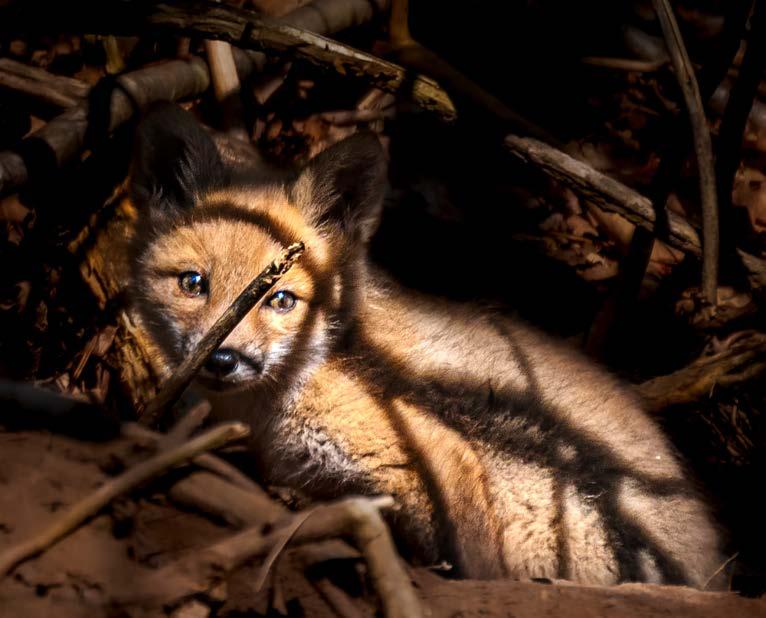
Whispers Between Trees
By Matthew Stevens
The forests of northern Pennsylvania are not quiet. They breathe. They hum. They carry ancient secrets tucked into mossy roots and whisper them across the mist of pre-dawn mornings.
It was within this world—beyond the paved roads, beyond the reach of easy comfort—that I found myself crossing paths with the fox.
Somewhere between solitude and connection, between instinct and thought, the fox came to symbolize something deeper for me. A mirror of my own journey as a photographer, a father, and a man growing older under these heavy canopies of oak and pine.
I never set out to photograph foxes, not really.
They found me.
Or maybe, more truthfully, they allowed me to find them.
•
At Hills Creek, on a morning stitched with heavy fog and silence, I set out to photograph the lake’s mirrored stillness. The sun was still a rumor. That’s when he appeared—a young red fox, ragged but vital, stepping through the pale undergrowth like a tree-summoned spirit. We locked eyes across thirty yards. No sound. No movement. Just breath against breath, soul against soul. The world fell away. There was
nothing but the ancient recognition between two creatures.
It was he who ended it first, vanishing into the birches with a silent flick of his tail. I stood trembling, camera useless in my hand, knowing somehow that I had been seen
•
Later that spring, I found her—the worn vixen curled at the base of a massive oak, her flanks heaving with sleep, her coat dulled by the heavy demands of new life. I approached with care and reverence, raised my camera for a single shot. Just one photograph to honor the trust she had unknowingly offered. Then I sat and simply watched. She was more than tired; she was triumphant. A queen draped not in gold, but in the battered leaves of a forest that had accepted her sacrifices.
•
On another encounter, near a den on a warm late spring day, five kits tumbled through the grass, reckless and wild, learning through play and failure. They pounced at grasshoppers, fought over twigs, tumbled into thorn patches with squeals of surprise. In their chaos, I glimpsed echoes of my own children, even my own youth—that hunger to know the world, and the inevitable bruises that would
come from the trying.
I watched them as a pilgrim bearing witness.
• Across seasons, the foxes kept teaching me. Watching a mangy old survivor hobble through a late autumn rain, hearing two foxes call out across a moonless night—the lessons were always there if I stayed still enough to listen.
They are a mirror of the spirit. They live between worlds—seen and unseen, fierce and fragile, wild and wary. They taught me that beauty is not perfection, but endurance. That wisdom is not loud, but watchful, patient. And that to survive—and to remain yourself—in a world determined to reshape you is the quietest kind of bravery there is.

Matthew Stevens, a thirty-six-year-old Marine Corps veteran and lifelong resident of the rugged mountains of northern Pennsylvania, is the owner and photographer of High on the Mountain Photography. With a passion for capturing the natural beauty and untold stories of his home region, he specializes in portrait, event, and nature photography while also volunteering his time to shoot local school sports and community events.




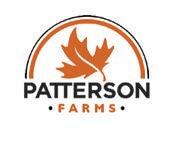




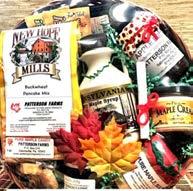
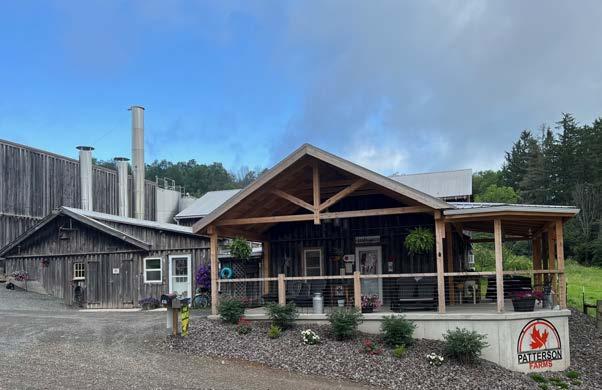

& Slate Run Tackle Shop
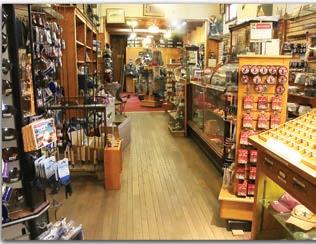


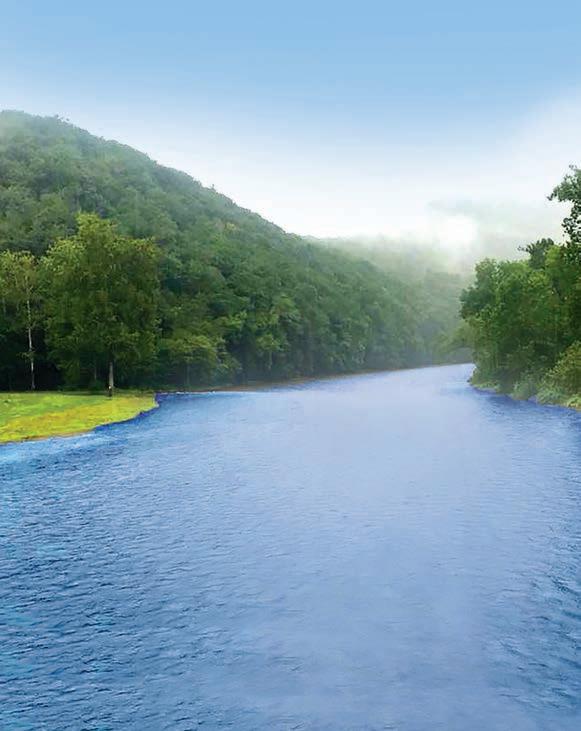



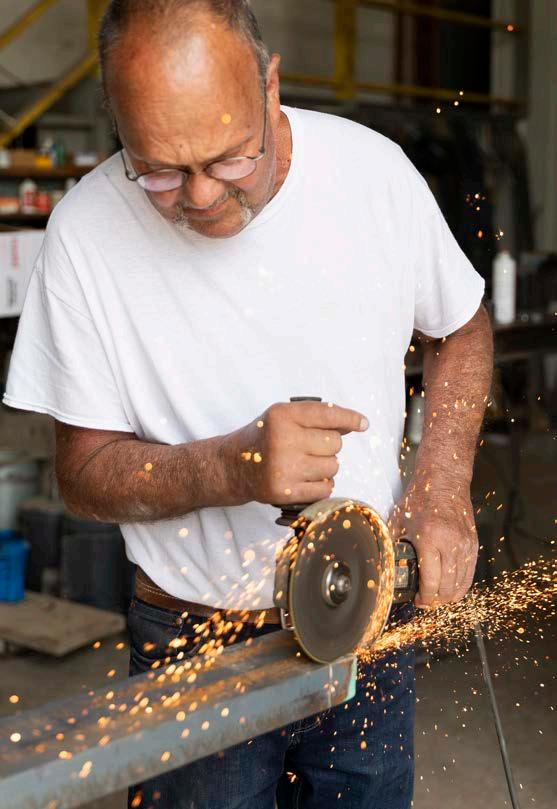
Sparking Loyalty
Garth Nash, head of maintenance, has worked at Cummings since 1975.
Forest continued from page 13
optimism, believing we could rebuild within seven to eight months. However, about three months into the process, reality set in, and my optimism wavered. In hindsight, though, reaching full capacity within a year is an incredible achievement. I’m grateful for the steady progress in the rebuild and, most importantly, pleased that our employees have returned to full employment.”
Cassy, who fielded Robyn’s midnight call about the fire, says there were 100 employees at CLC up to the night of the fire—seventy at the mill/office/garage and thirty at Barefoot Flooring. Barefoot Pellets had seventeen employees. There are currently seventy-five employees at CLC and Barefoot Flooring, with the same seventeen at the pellet factory. After the fire, she says, “we kept people on throughout the summer to help with cleanup.” Some were laid off temporarily during the summer, but “we were able to bring them back by the end of the year.”
“With the goal of keeping the employees working, we pivoted a bit to ensure that we could still provide opportunity to them,” Scott says. “Rather than hiring external cleanup crews, they assisted with the cleanup. We also shifted some employees to the other facilities—flooring and pellet—allowing them to continue working and providing for their families. They learned new skills and stepped up to the challenge, knowing they’d get back to their ‘normal’ jobs as soon as we could continue the rebuild and safely allow them to do so.”
“We haven’t replaced retirees, summer help, and those who left for other opportunities,” Cassy says. For those who might be interested in working for a company that cares about its people and its resources, the good news from Cassy at HR is that “we will ramp up hiring soon.”











BACK OF THE MOUNTAIN
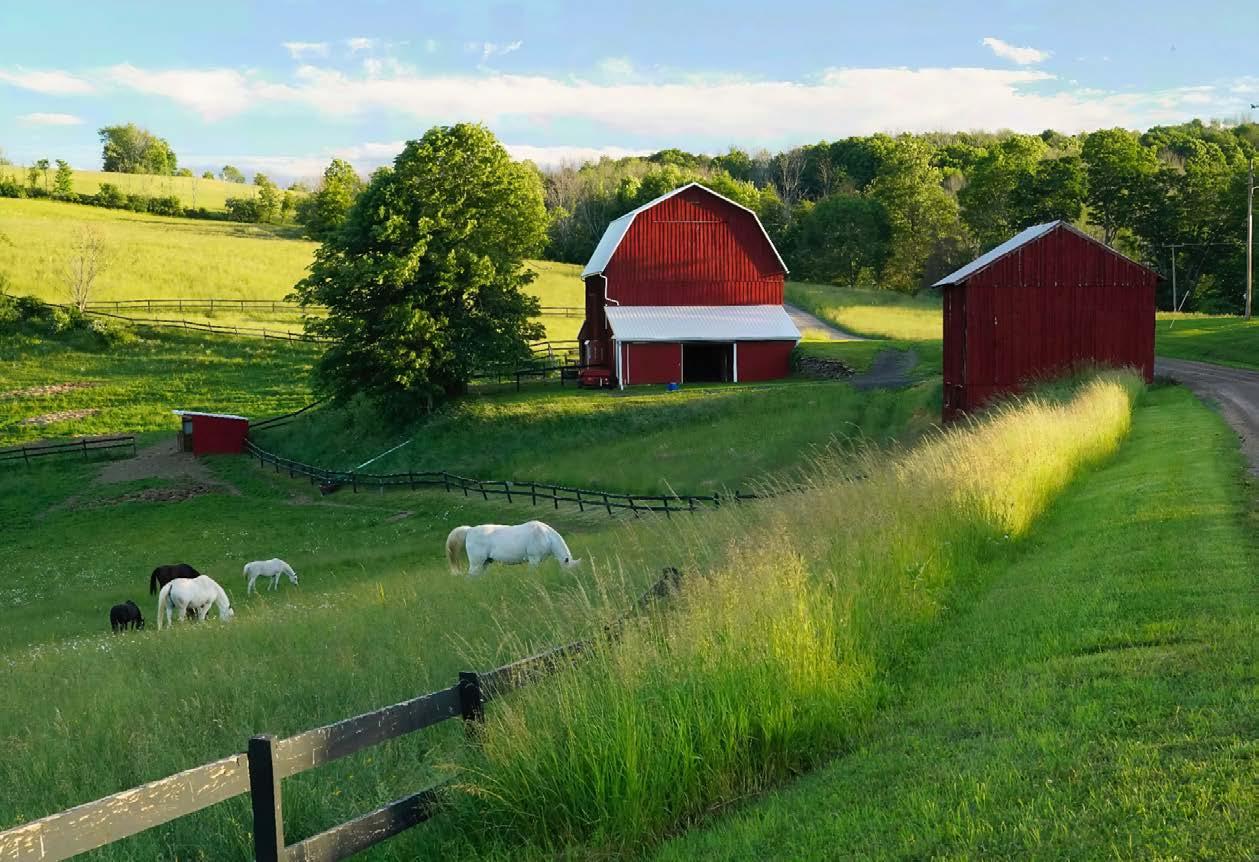
Good Neighbors
By Linda Stager
My grandpa, the farmer, always told me, “good fences make good neighbors.” He said good fences fostered peaceful relationships and mutual understanding for those on each side of the fence. As a photographer, I am drawn to fence lines. There is something special about how they divide a pasture into orderly sections, and my eye follows them through a scene.
I’ve made friends with the owners of this farm between Little Marsh and Knoxville in Tioga County, Pennsylvania, and I think it’s one of the prettiest. I used to get lost trying to find it, but no more. I go there every season. In early summer, the horses look so happy to have deep, thick grass again. The shadows of the late afternoon sun on the well-kept red barns stretch over the pasture and keep them cool while they munch.
Usually when I visit, the horses come right up to me so that I can talk sweet nothings to them (and I do). But this day they barely looked up from their lunch—probably glad I was kept on the other side of the fence where I wouldn’t bother them.
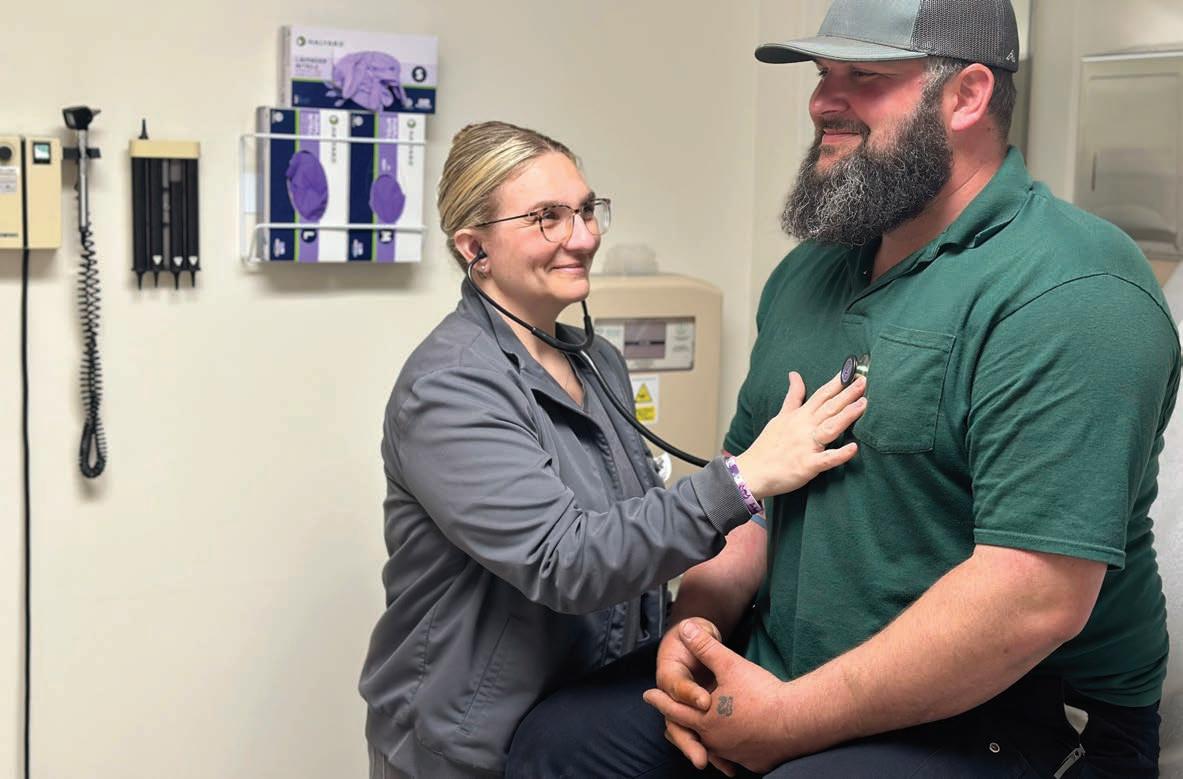
Strong Minds, Strong Bodies: Your Health Matters.
Your health is your greatest asset. Regular check-ups and early detection can make all the difference in preventing serious conditions and staying active for the life you want.
From physical health to mental health, every conversation matters.
Prioritize yourself today. Schedule a visit with Guthrie Primary Care and encourage the men in your life to do the same.
Schedule an appointment by visiting www.Guthrie.org, scanning the QR code on your smartphone or calling 866-GUTHRIE (866-488-4743).











CHANGING HEALTH CARE CHANGING LIVES

At UPMC, we don't imagine possibilities—we pioneer them. Challenging conventional thinking. Uncovering never-before-imagined treatments and turning them into reality. Every day, we are redefining what health care can be and empowering you to live your best life.



